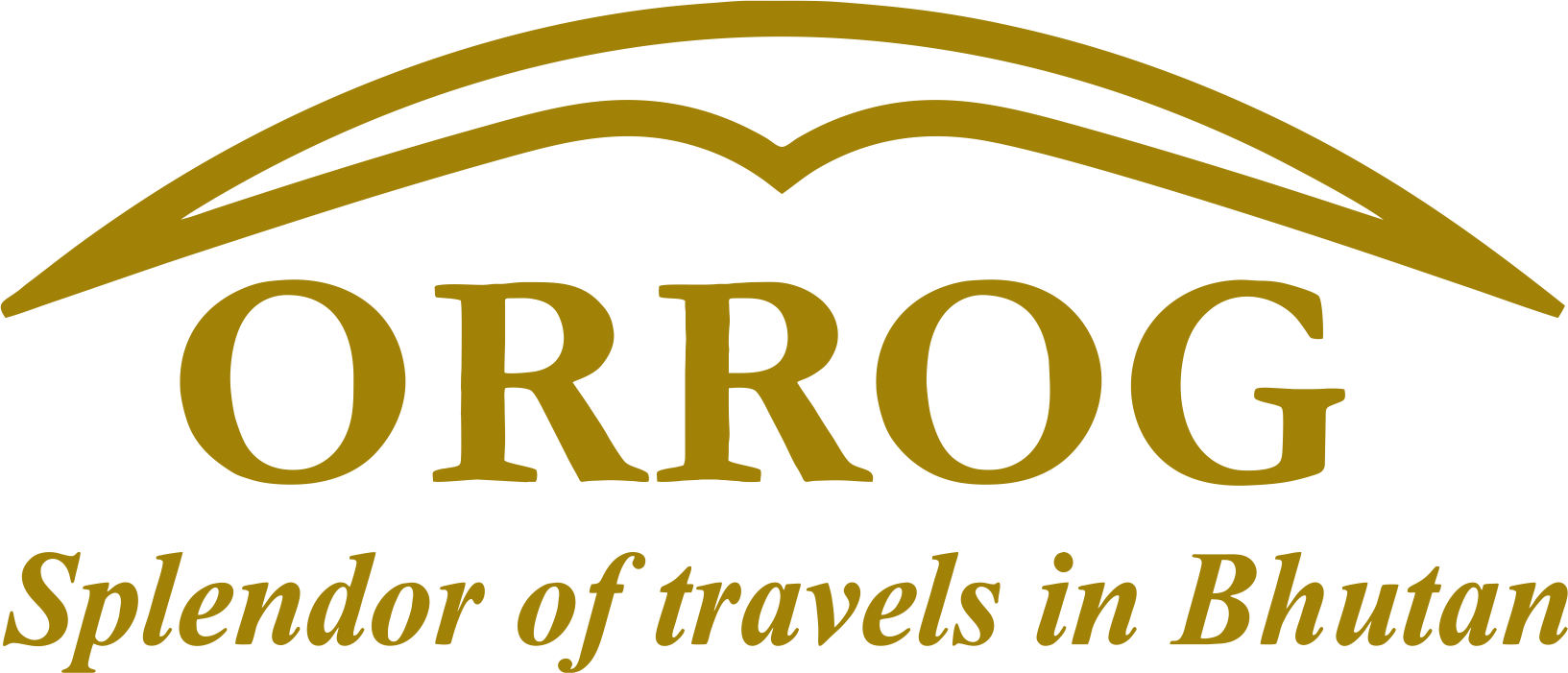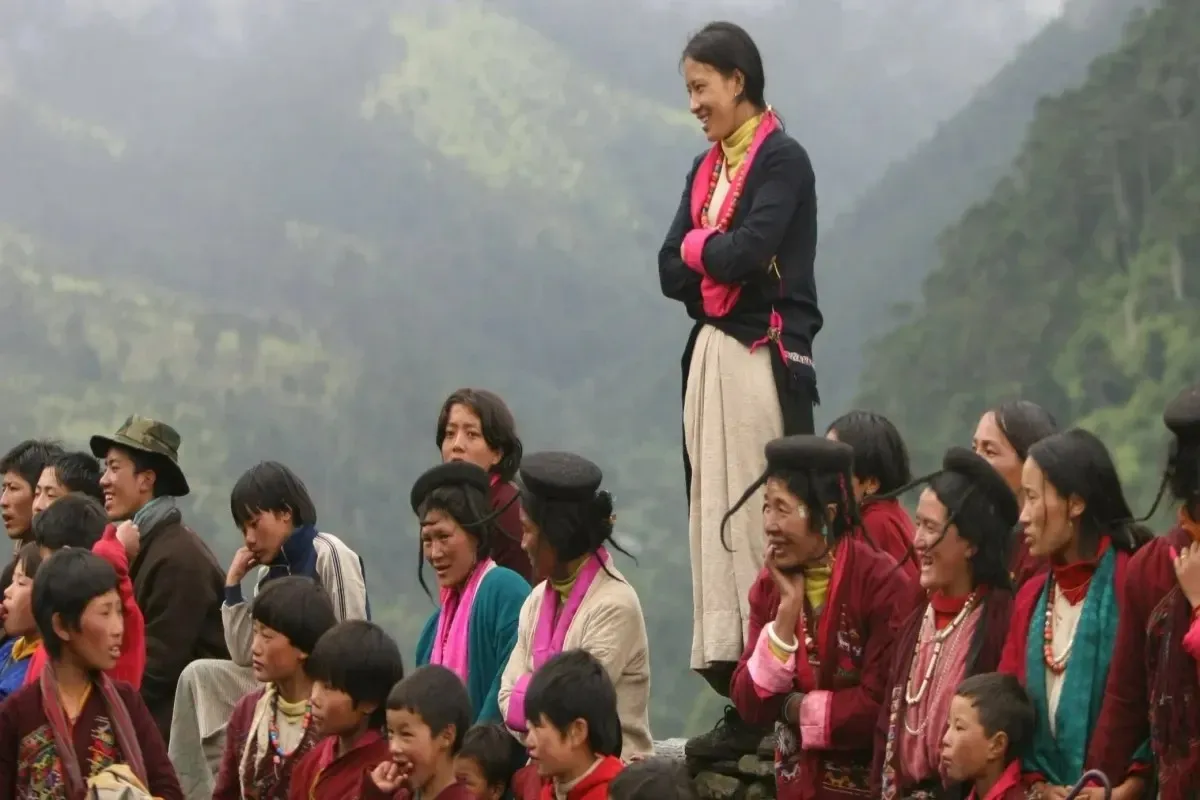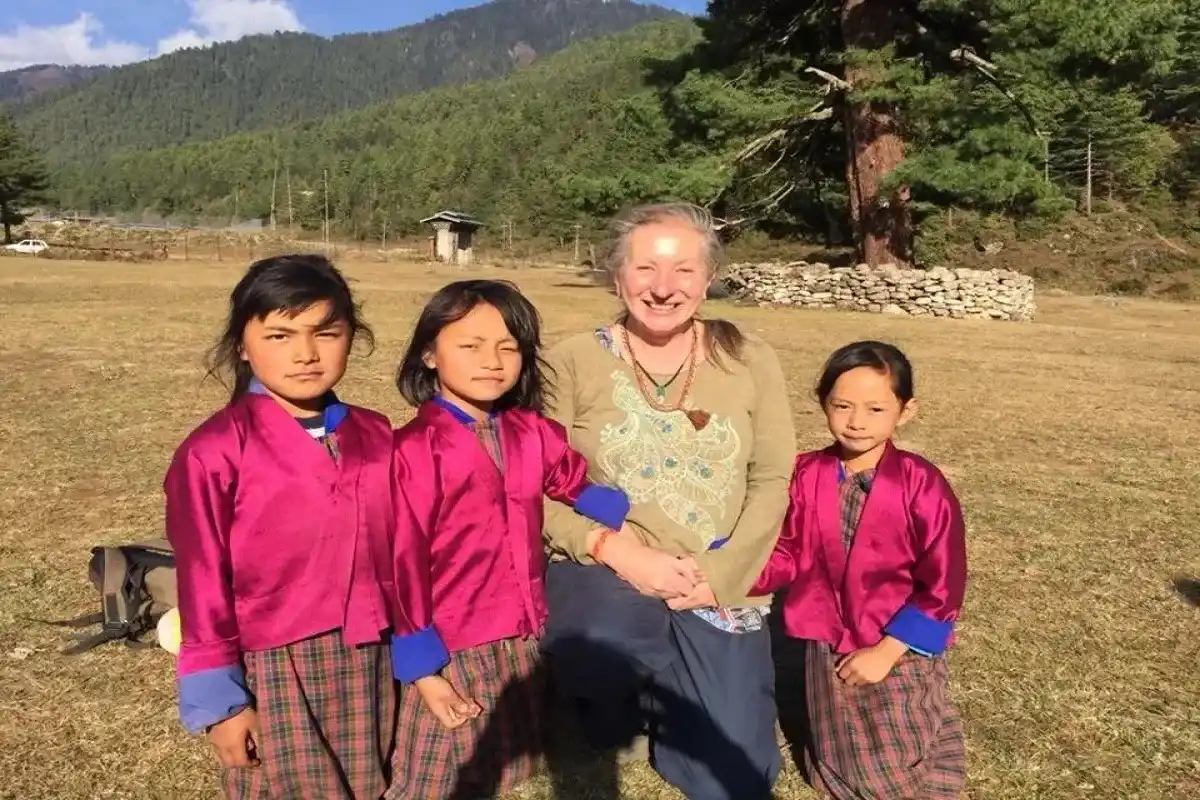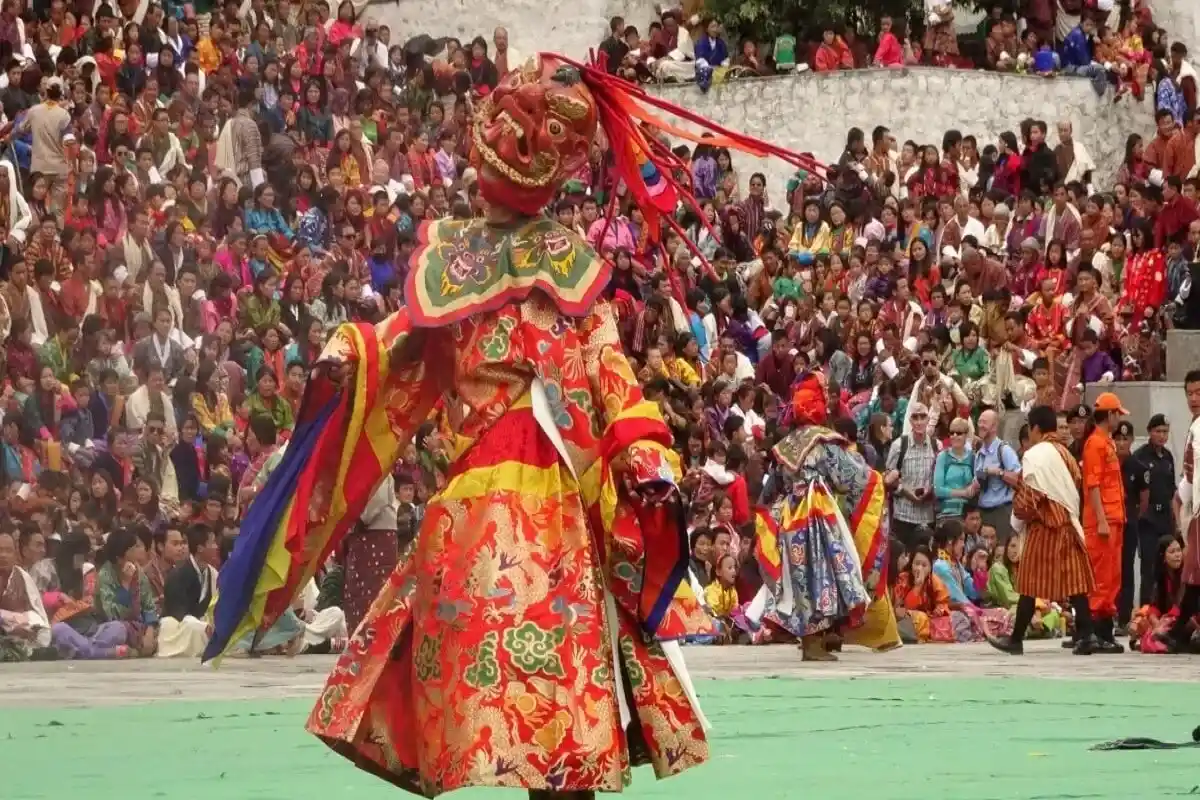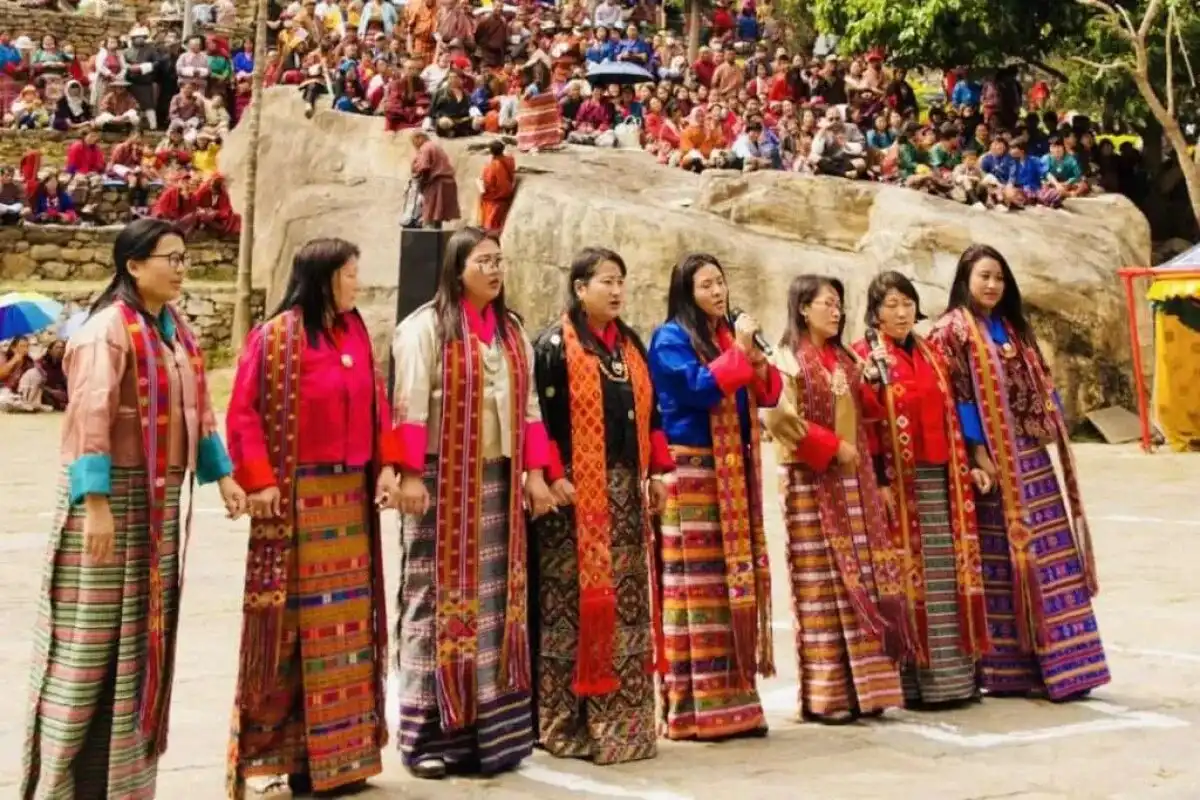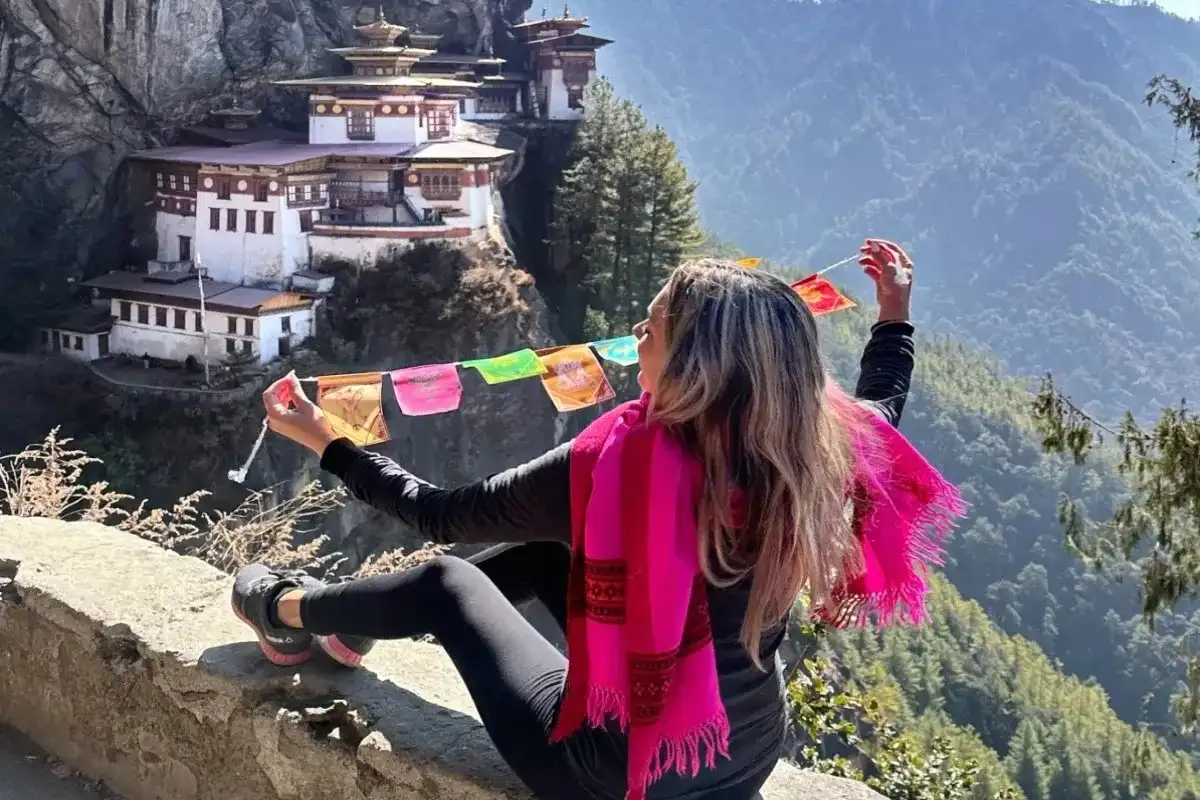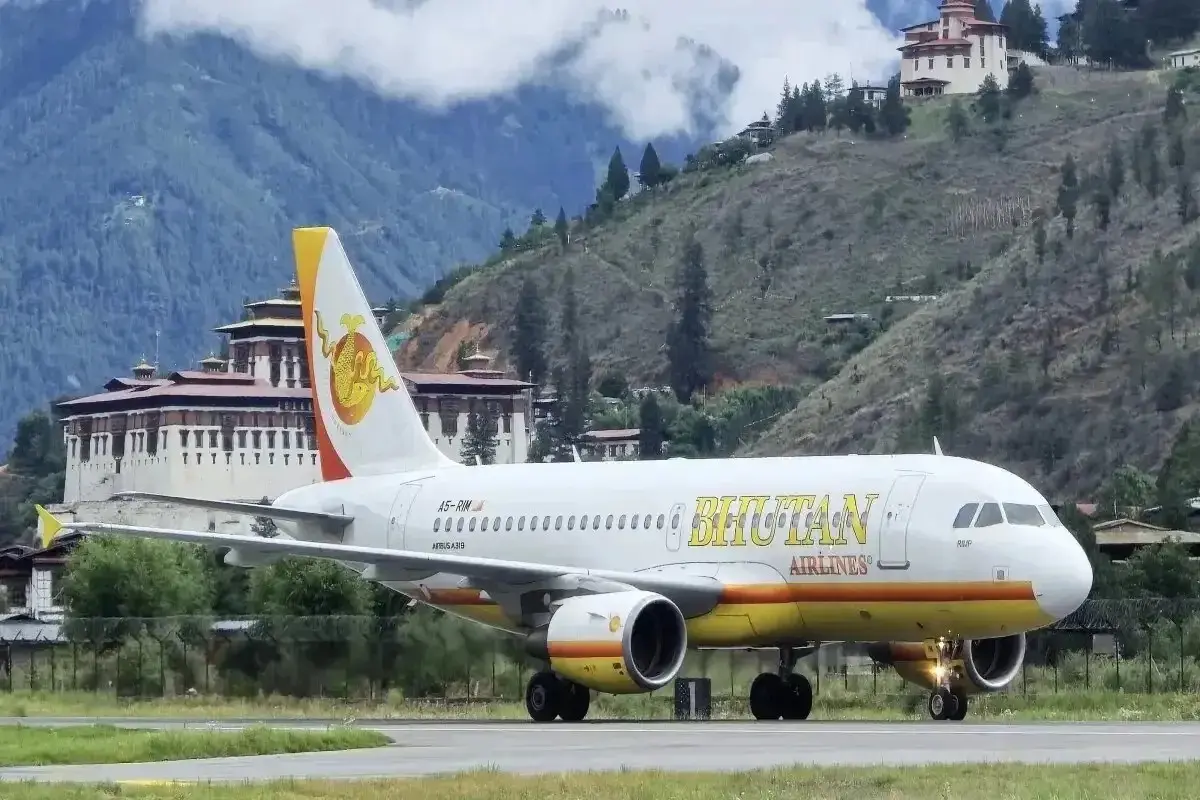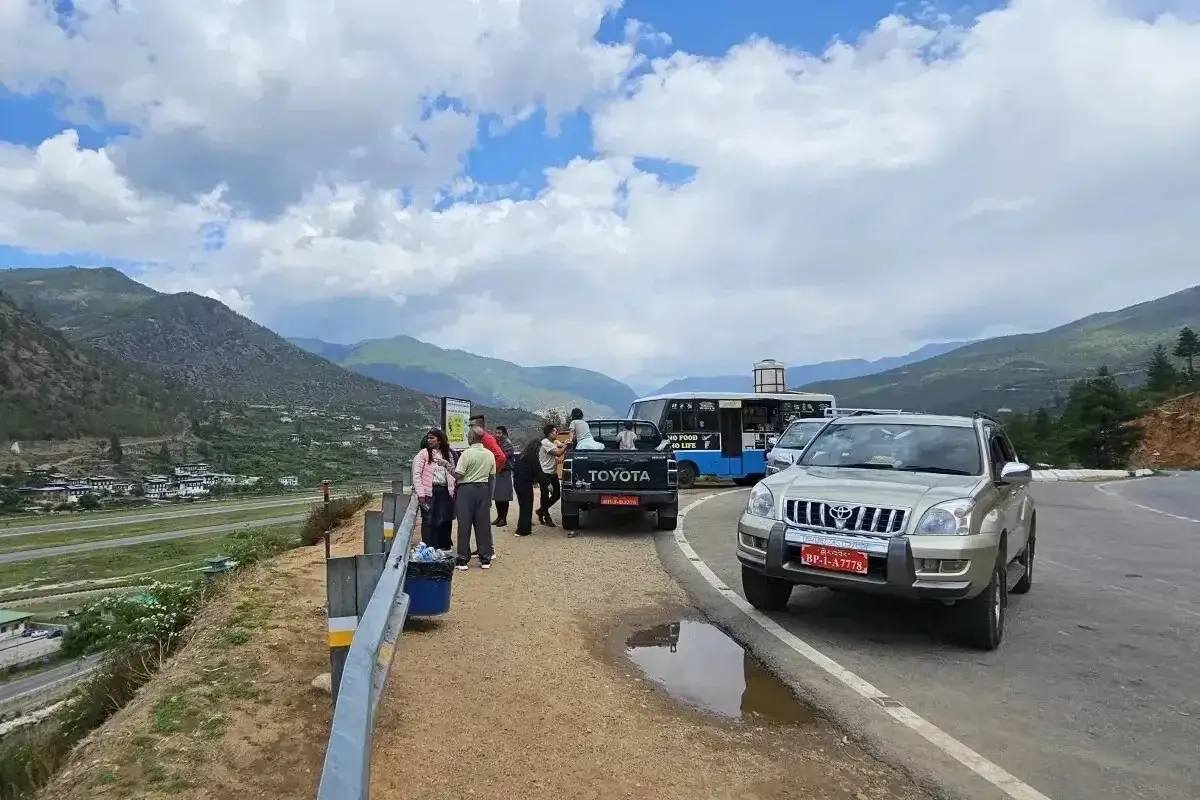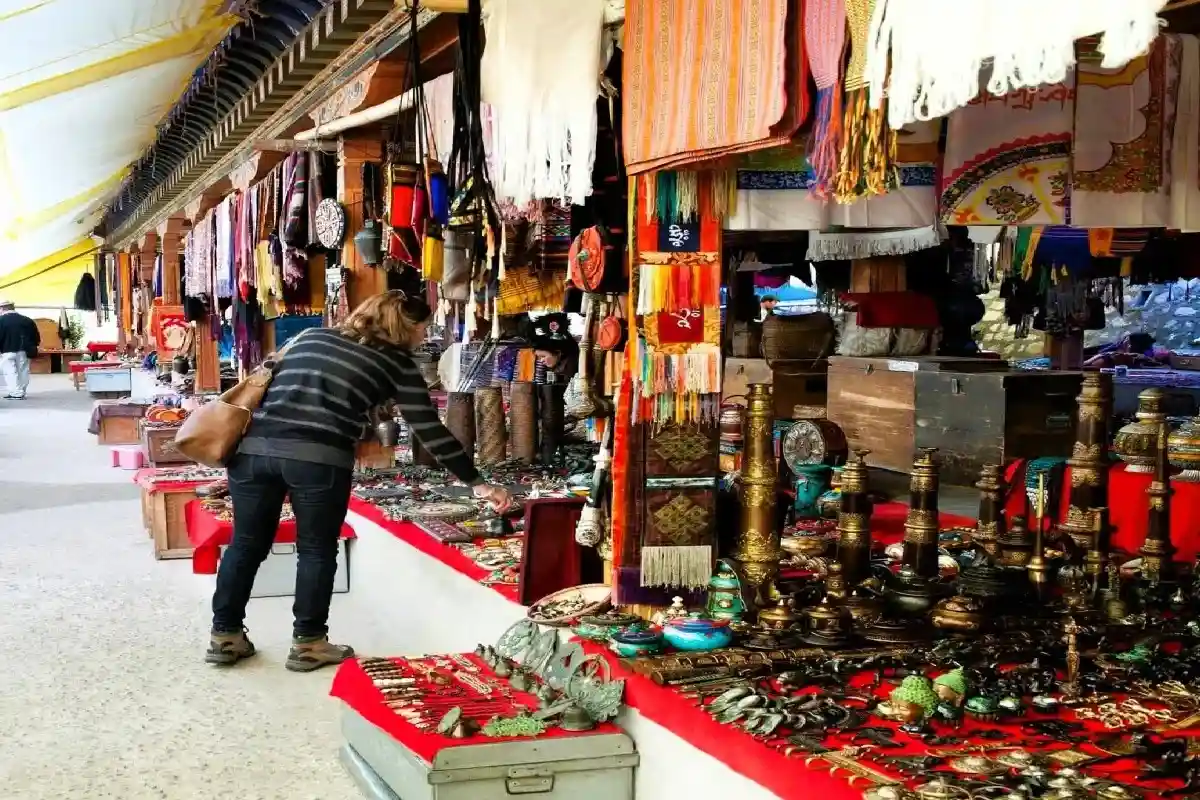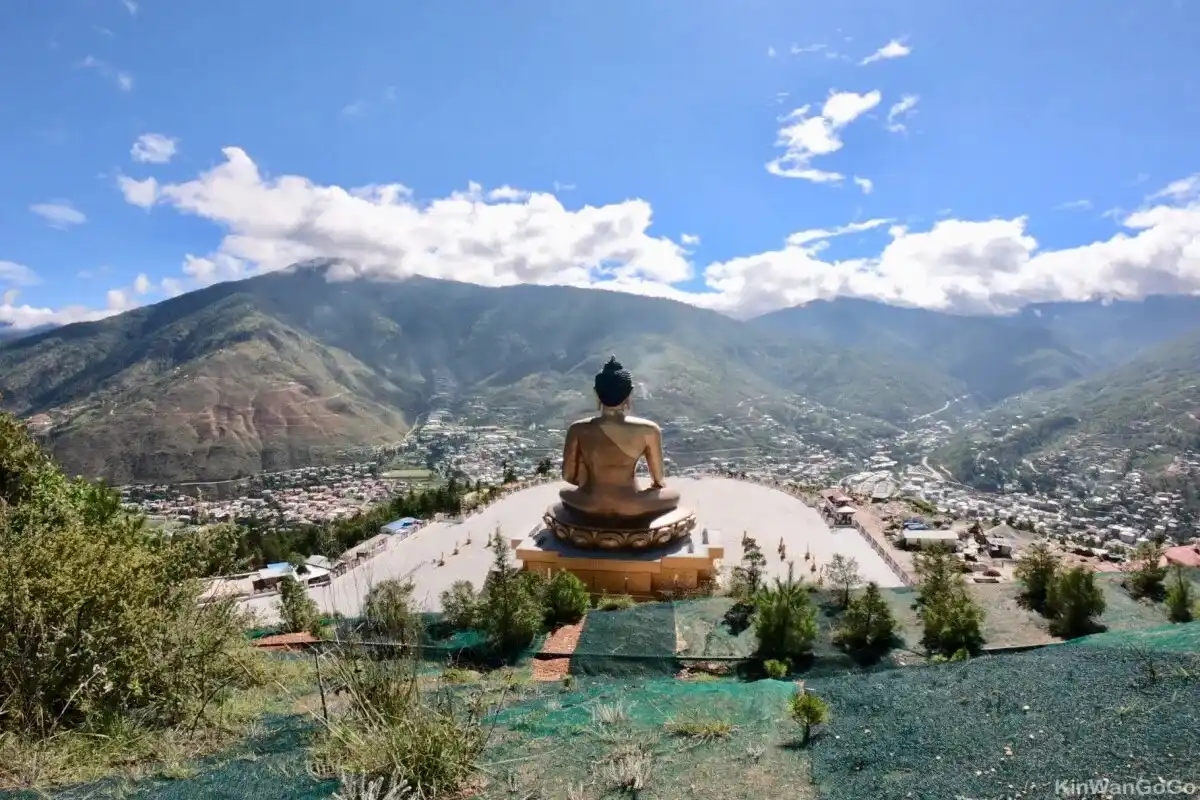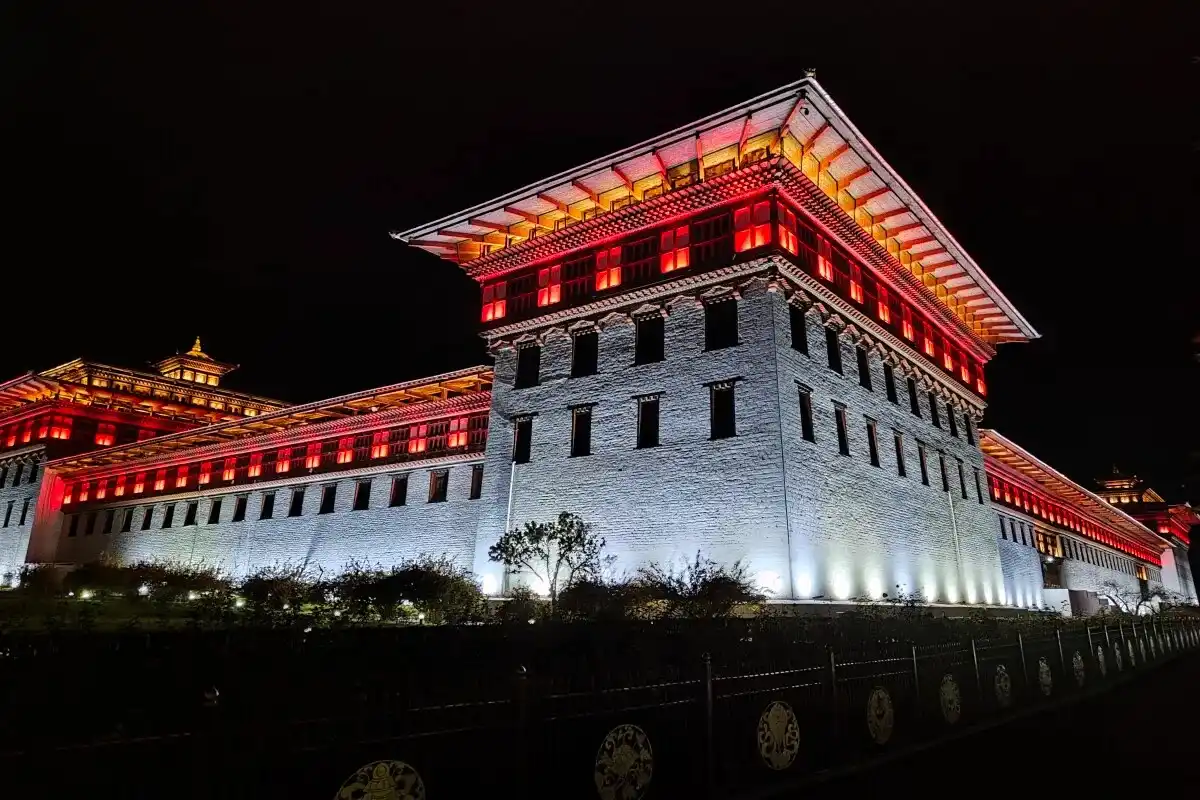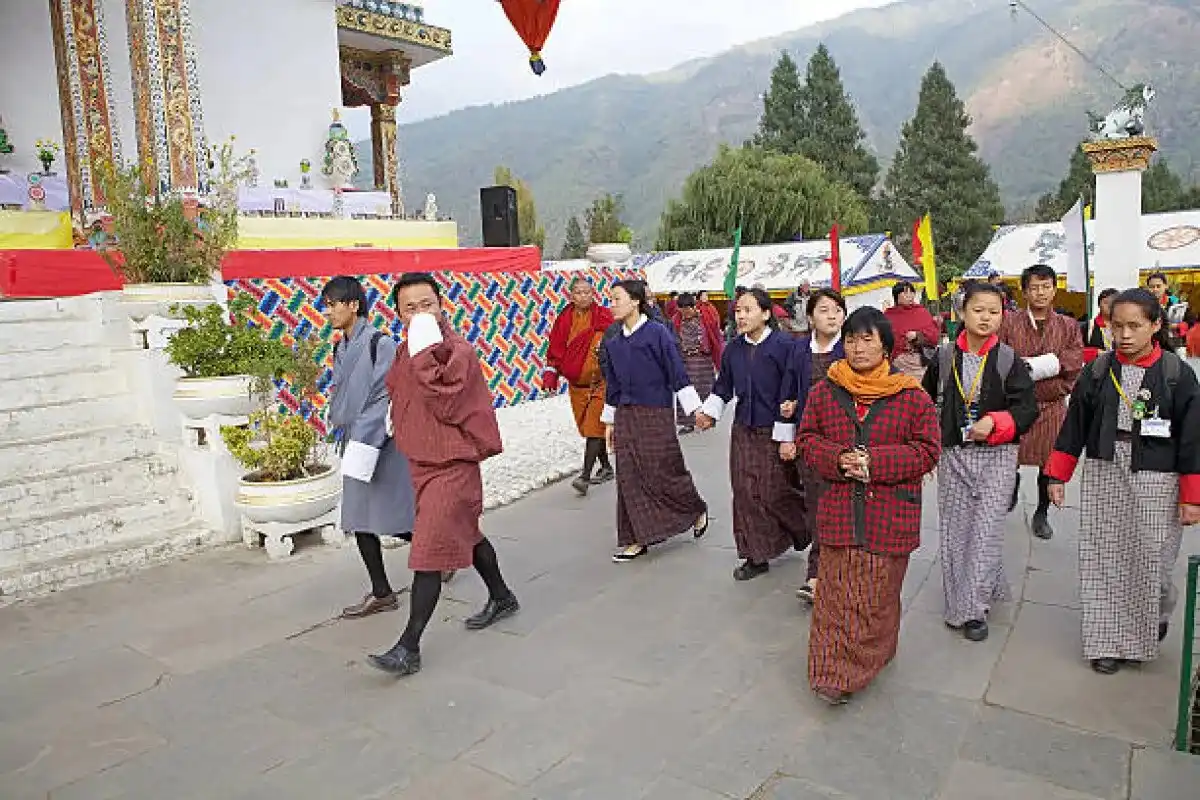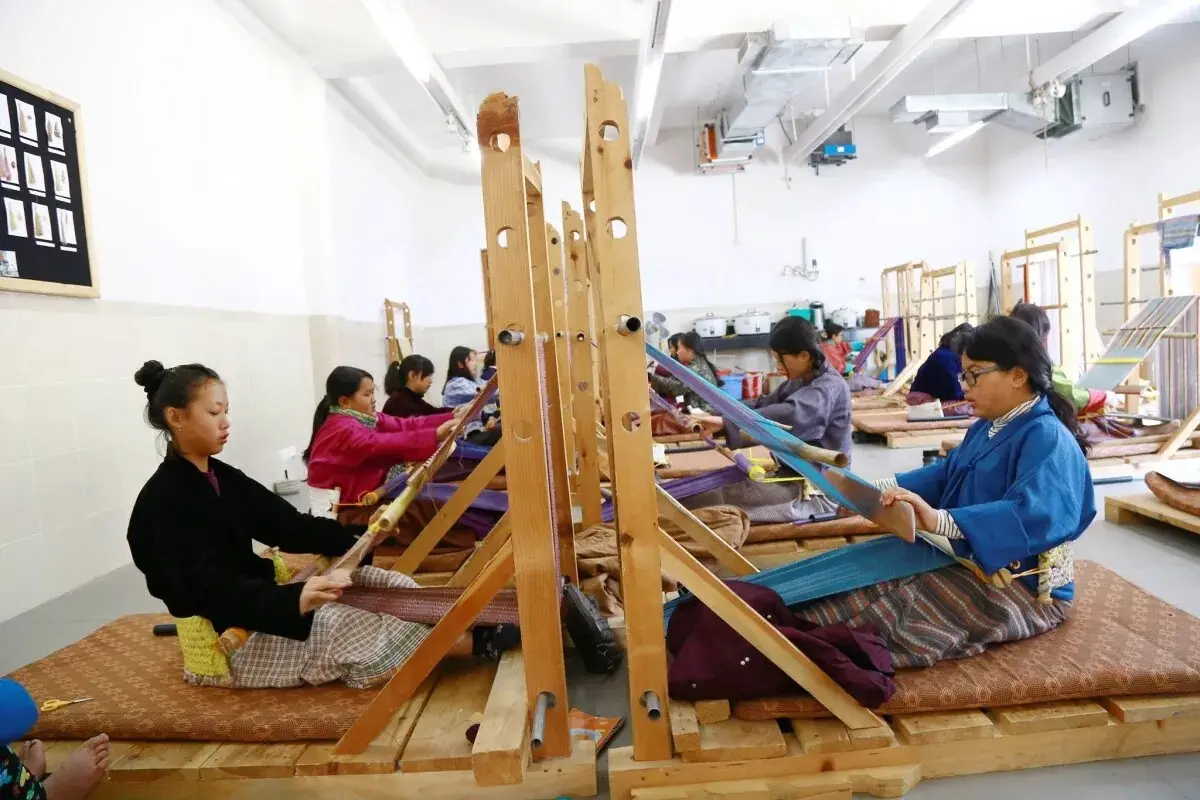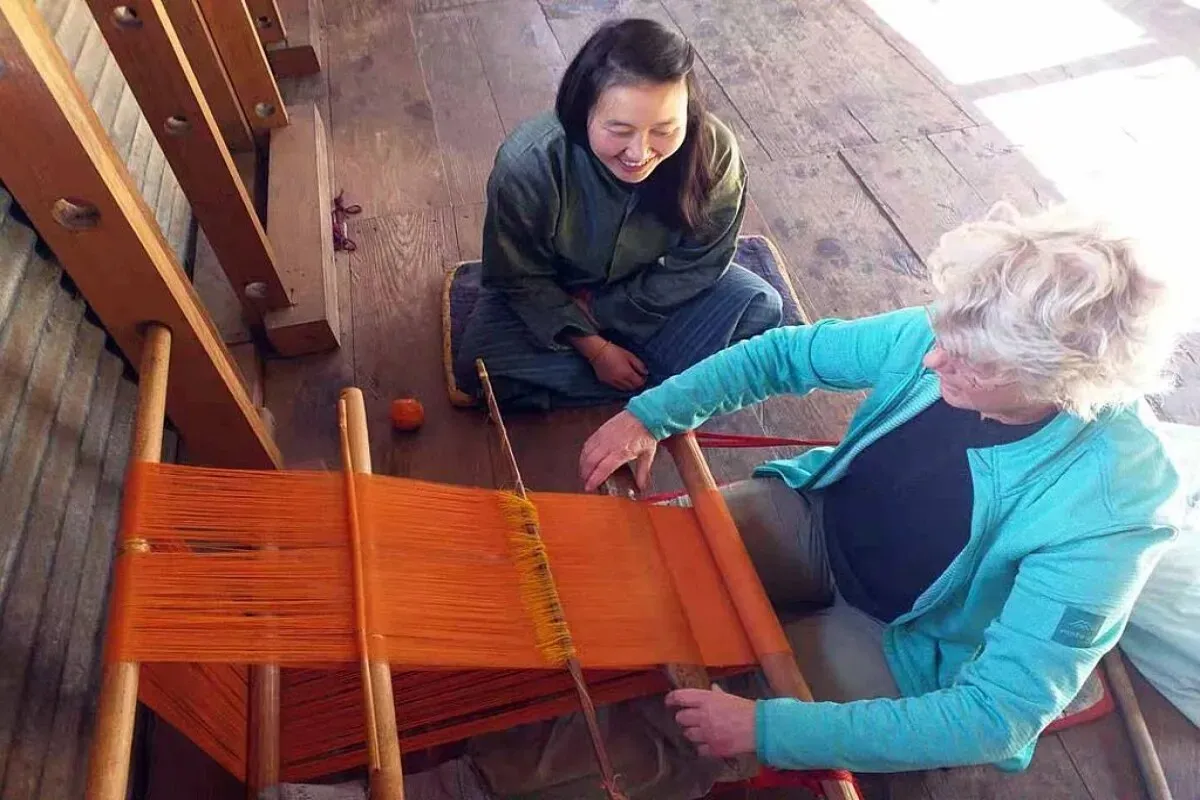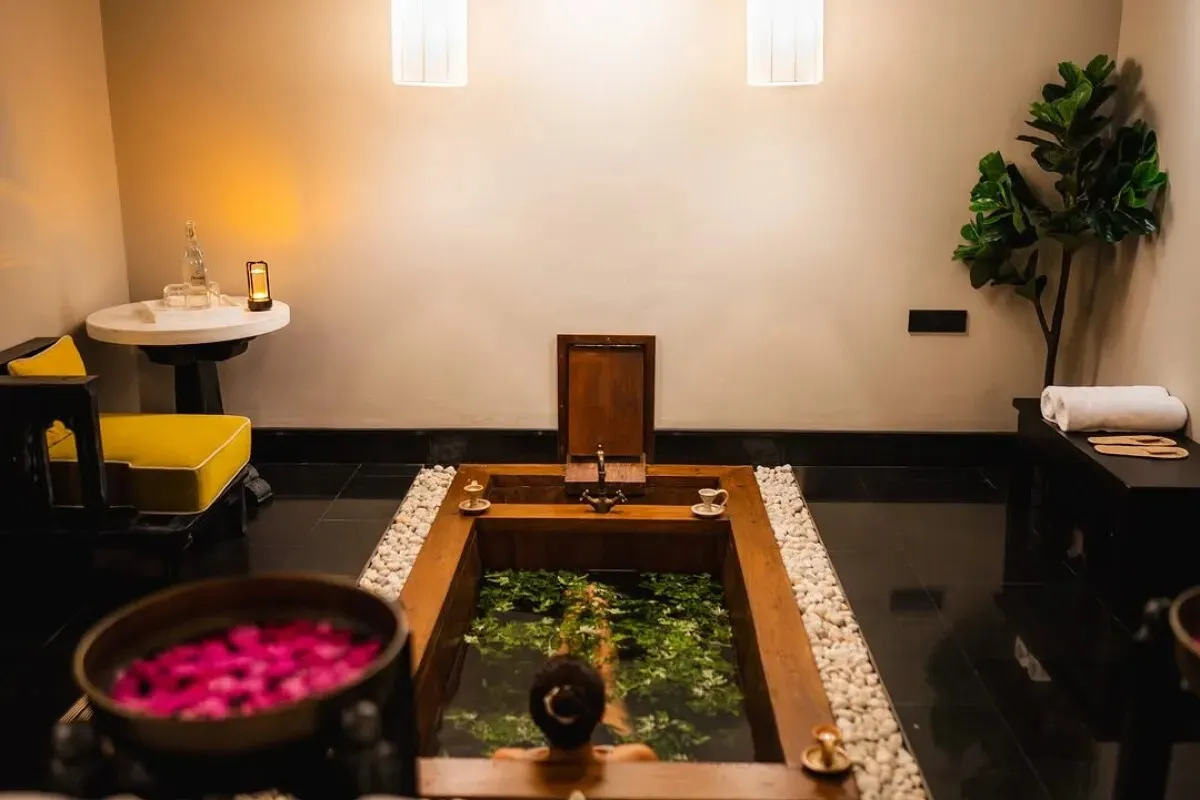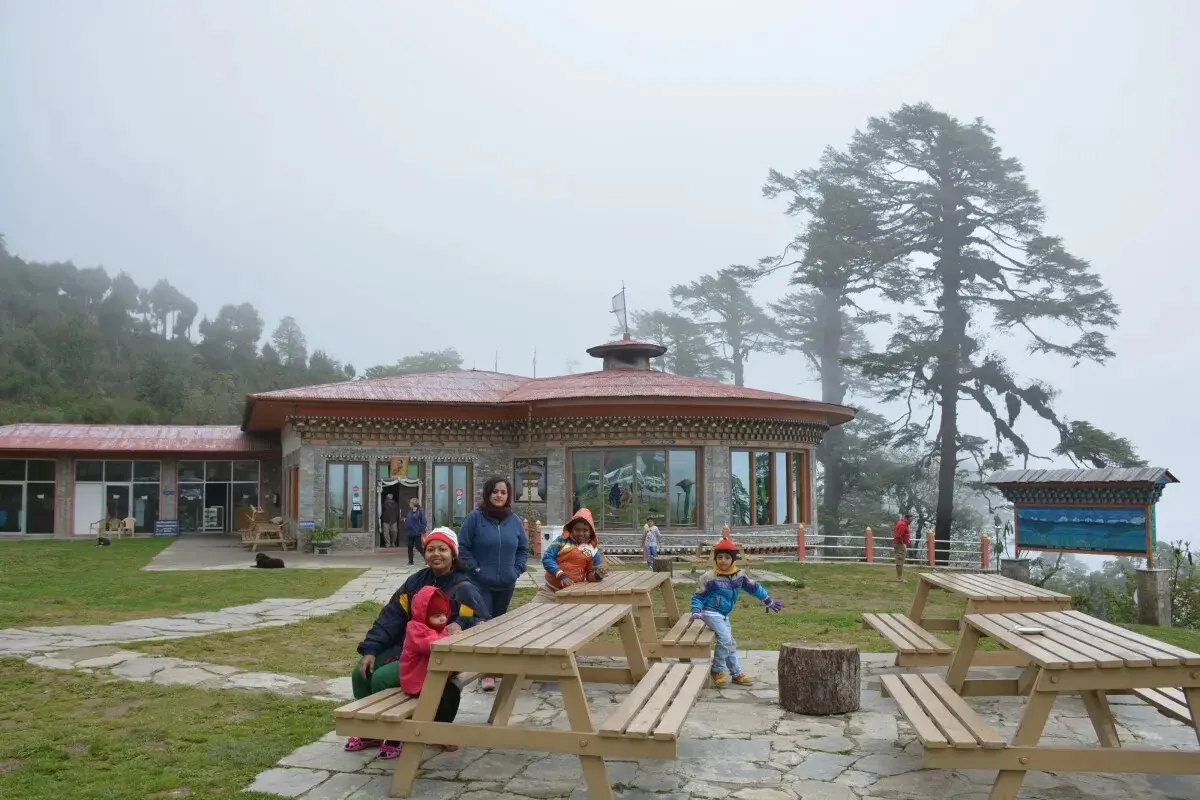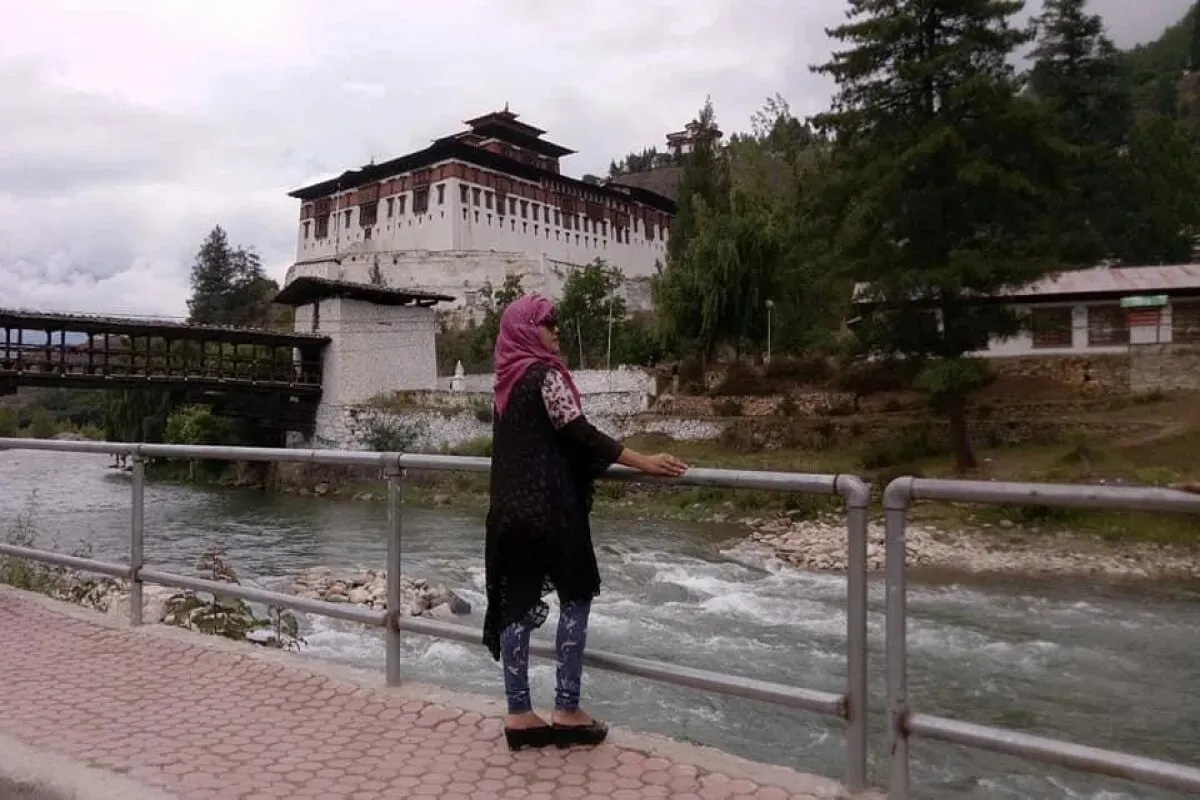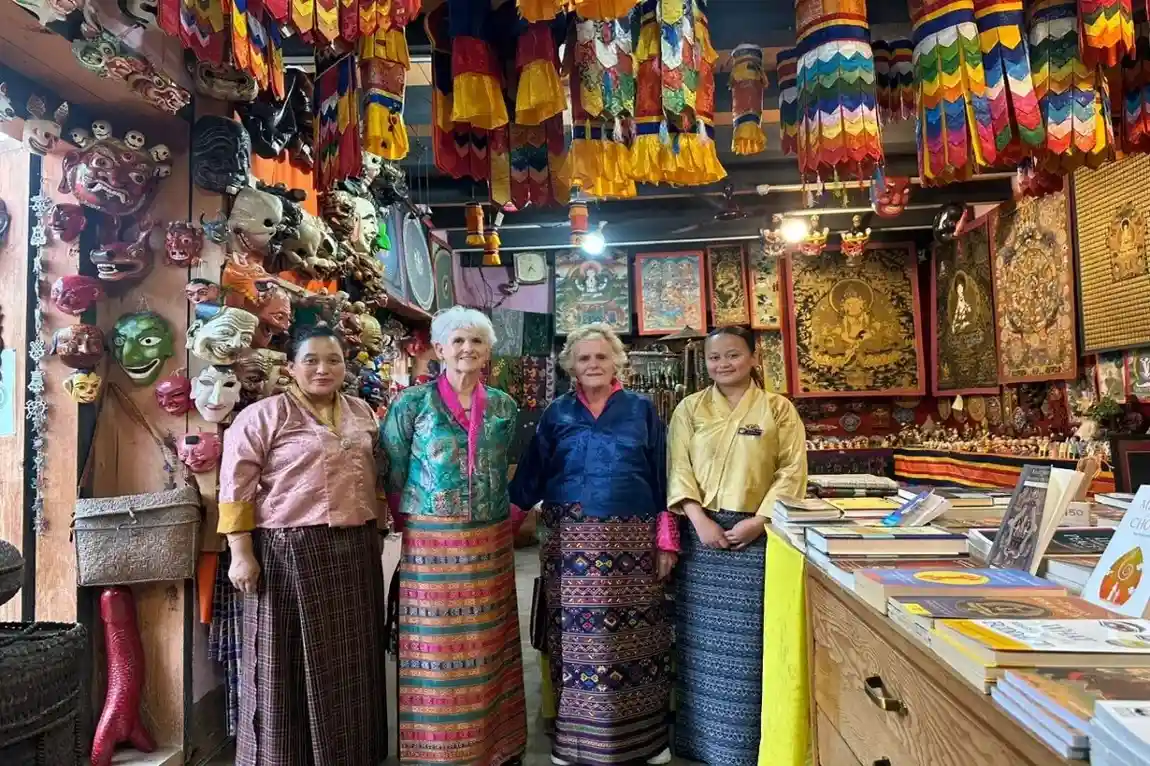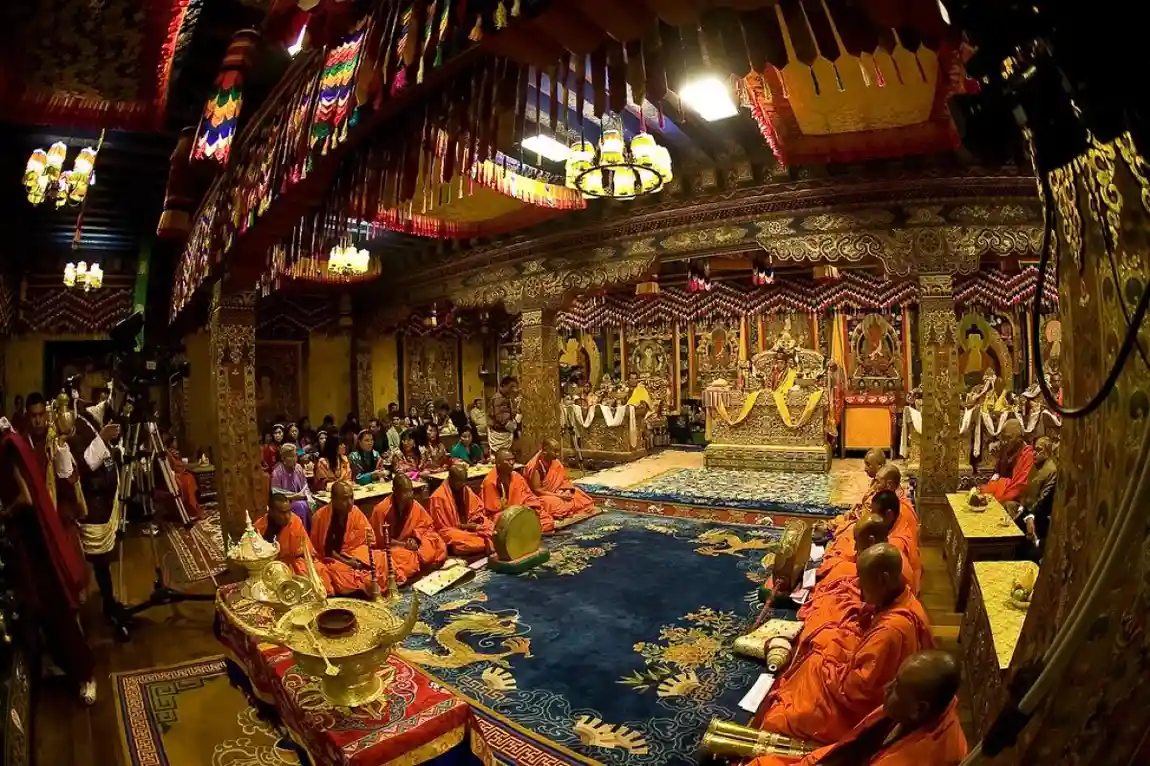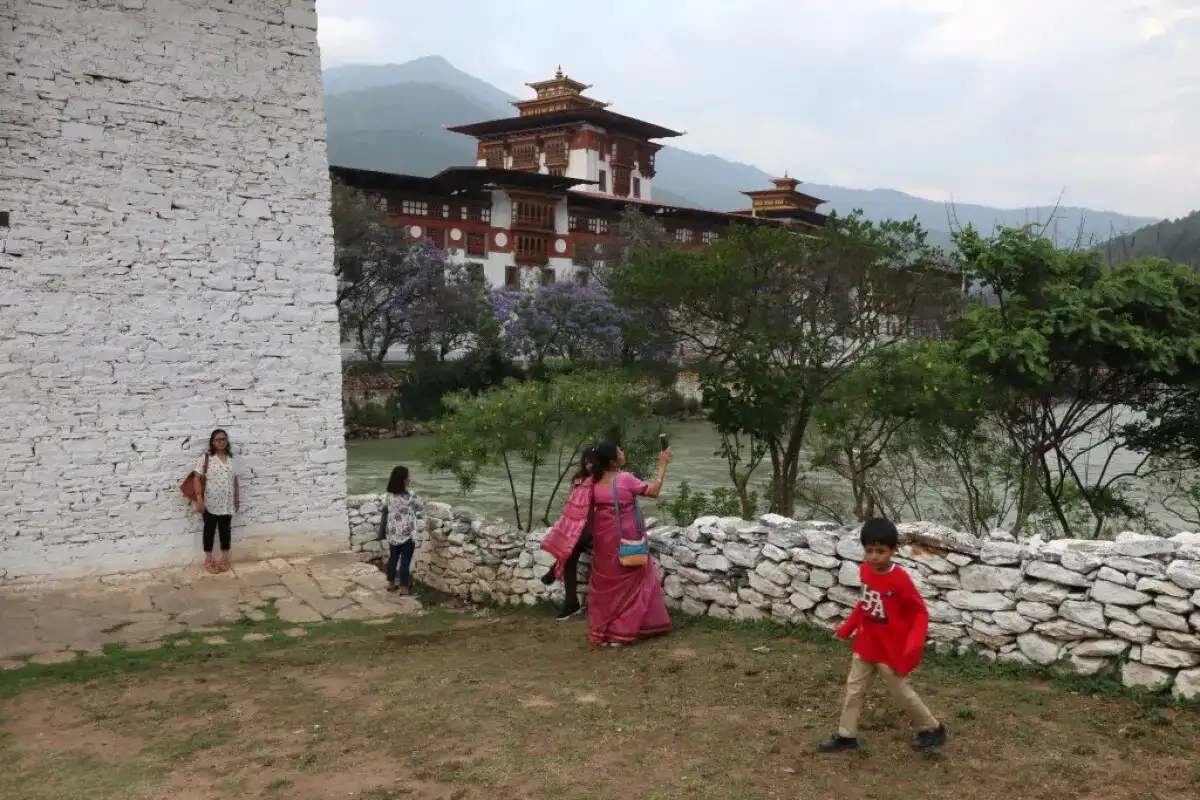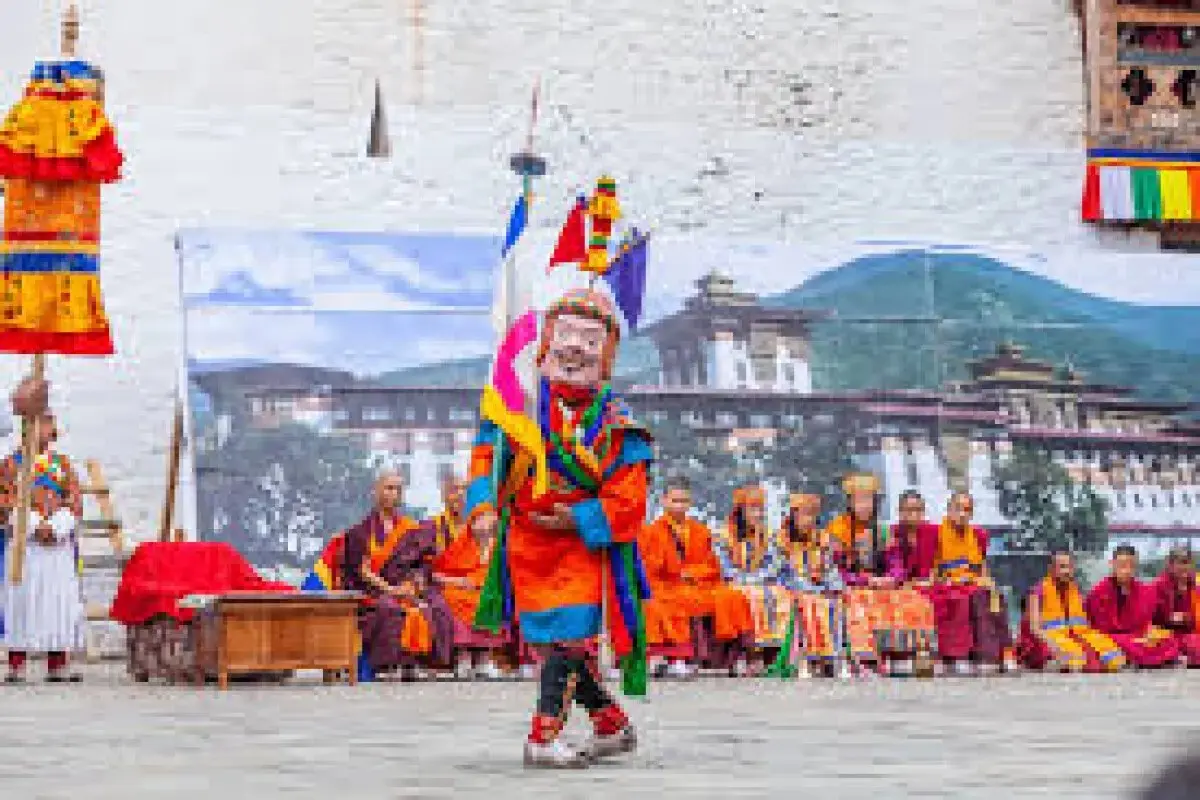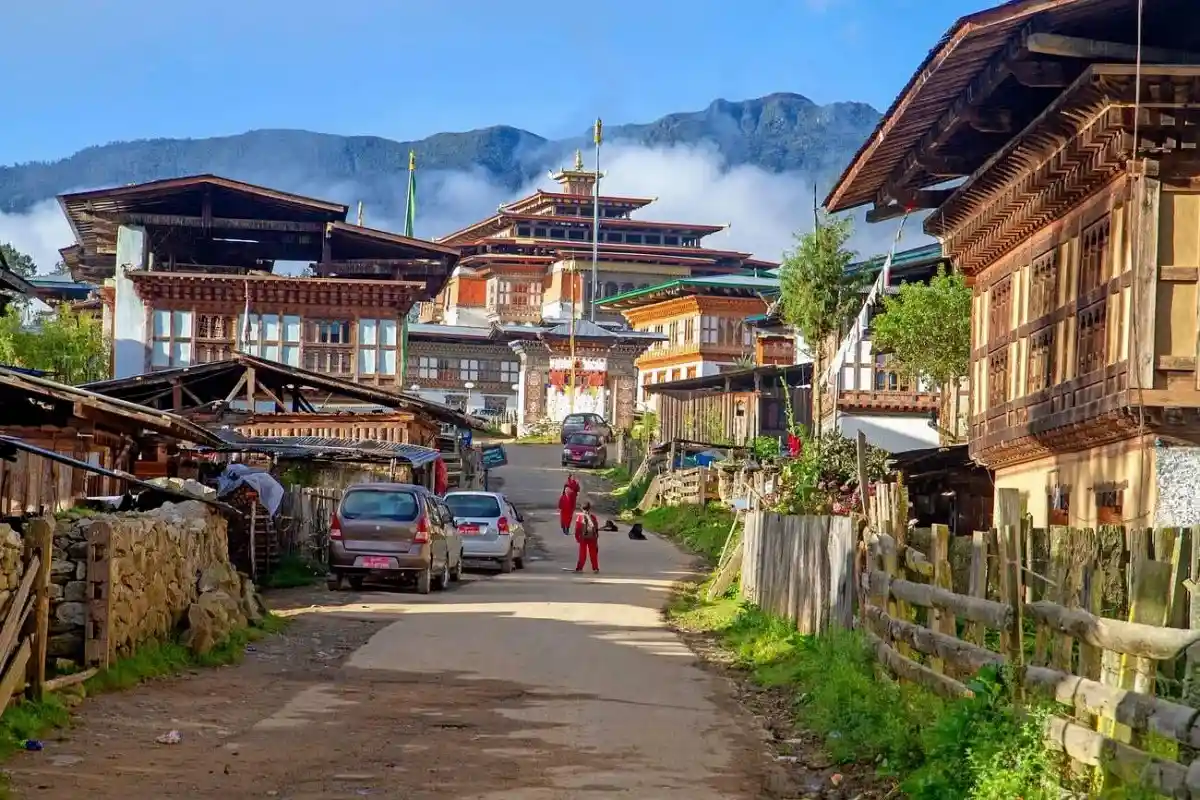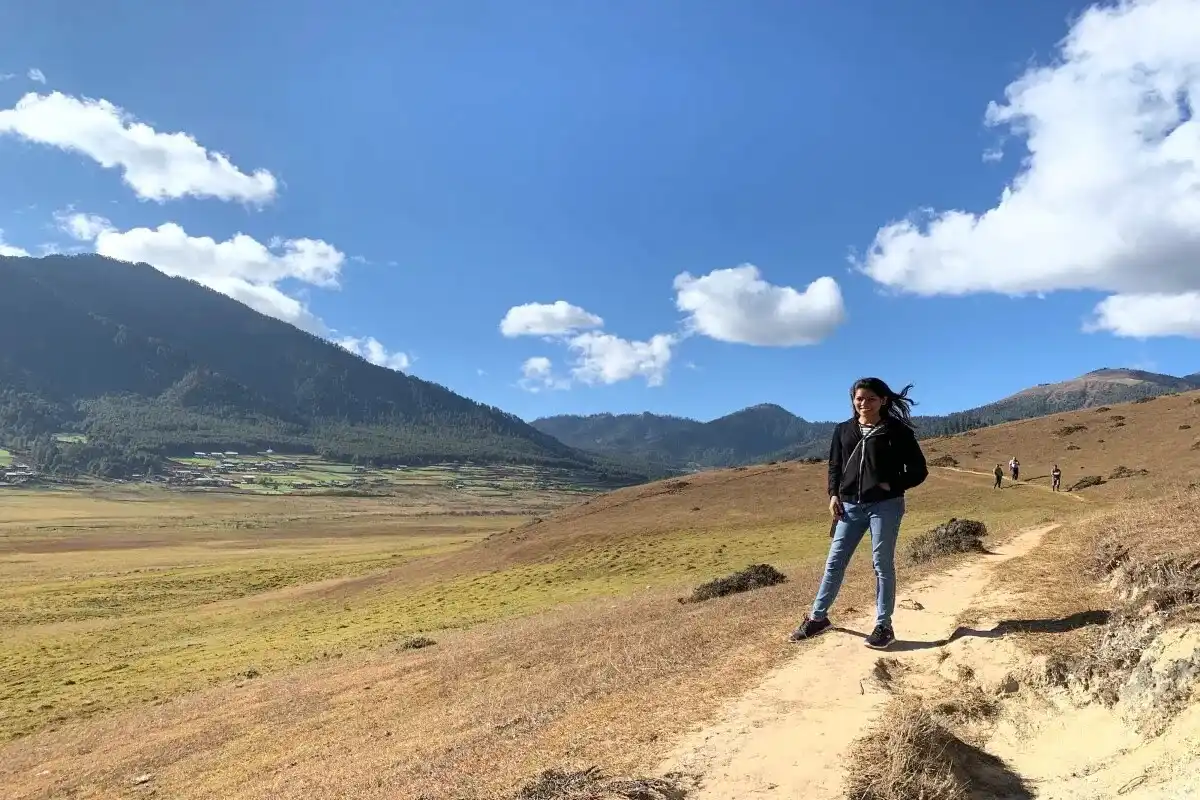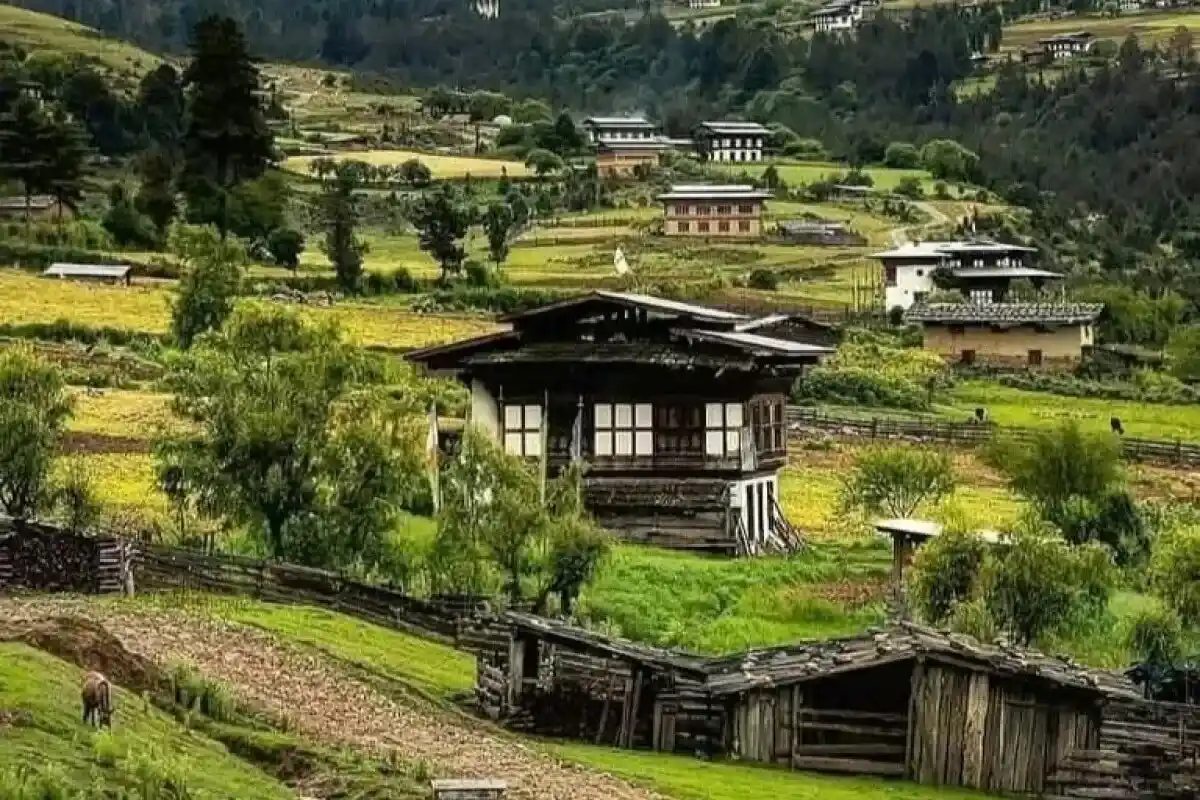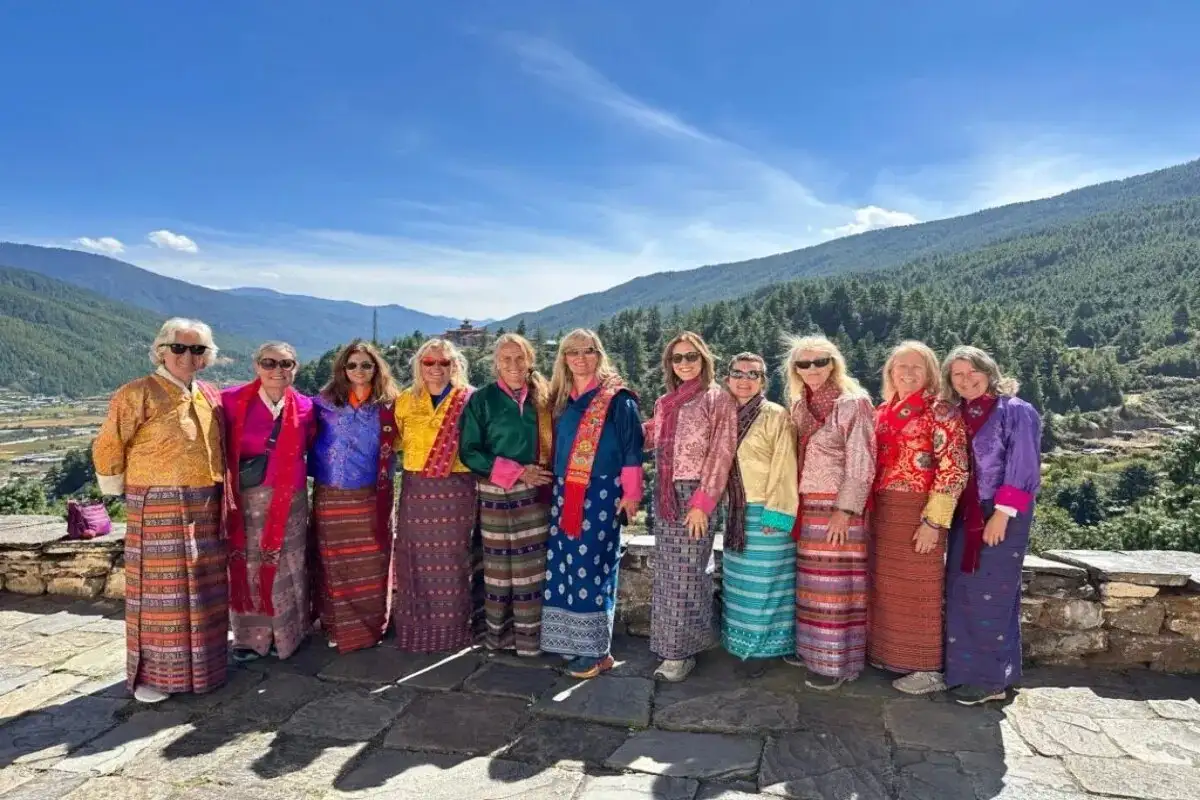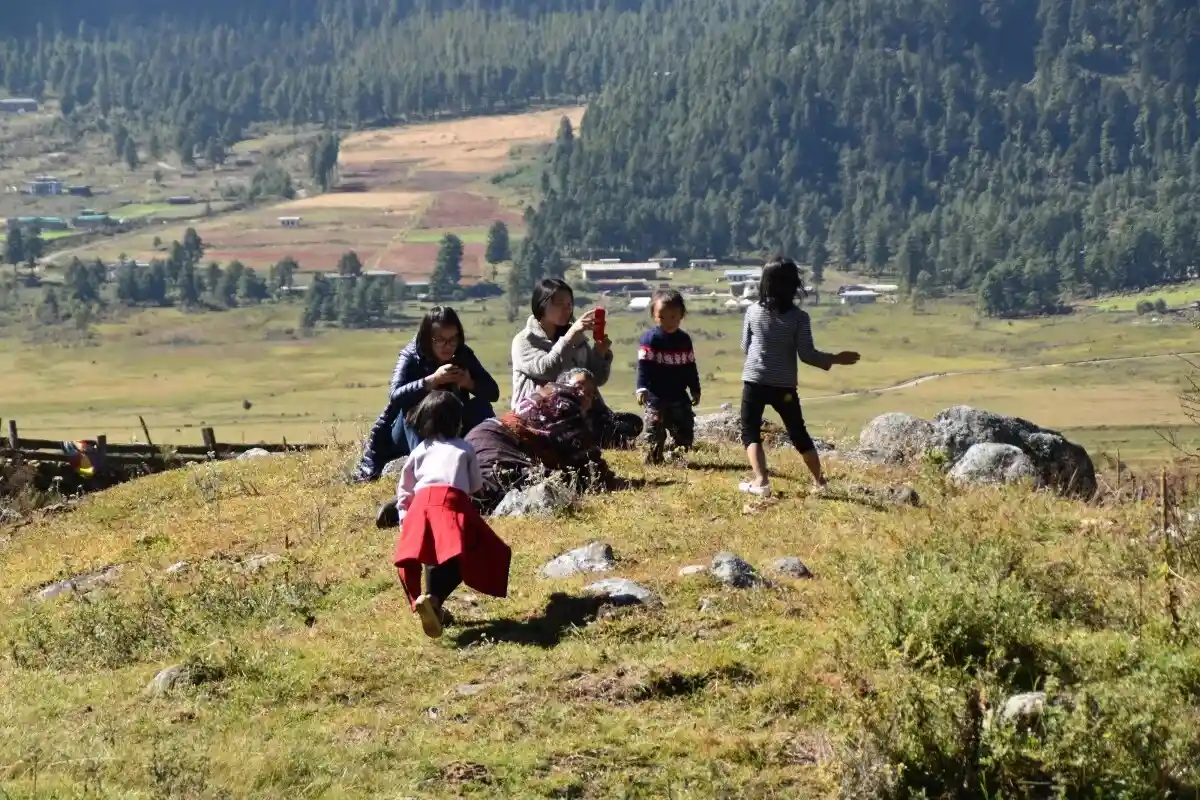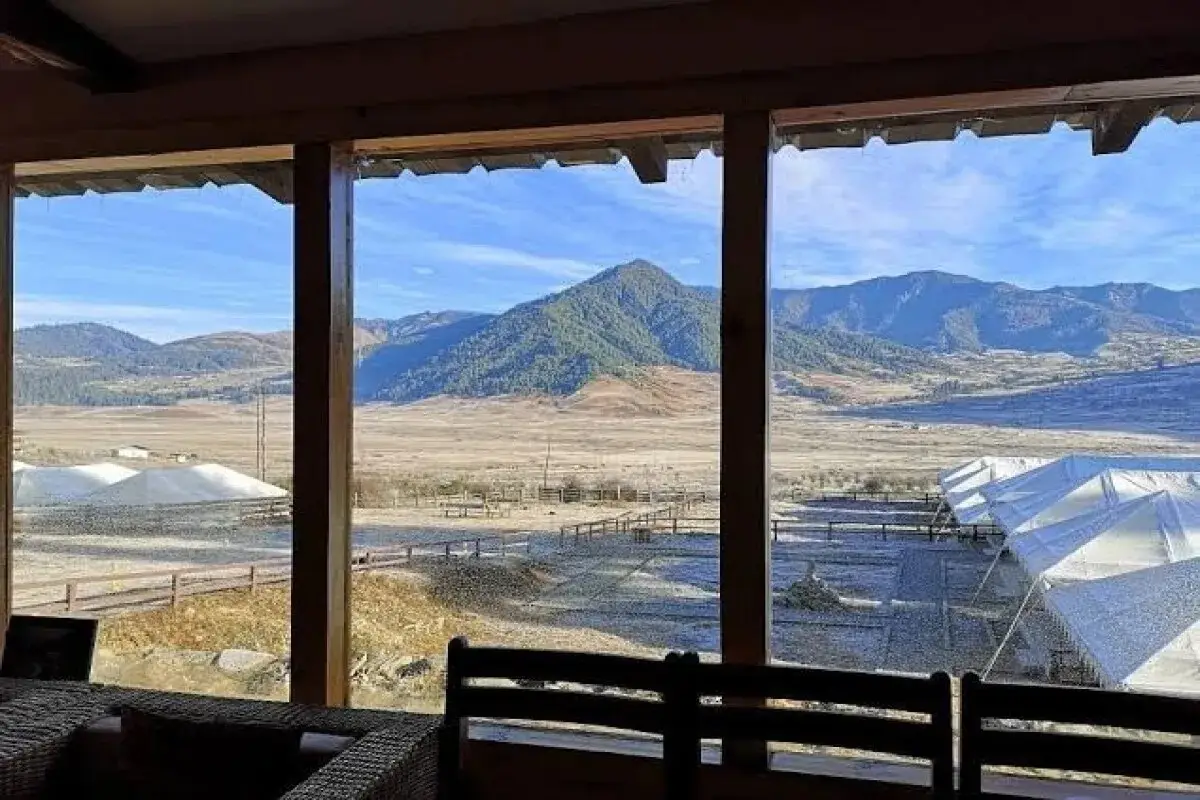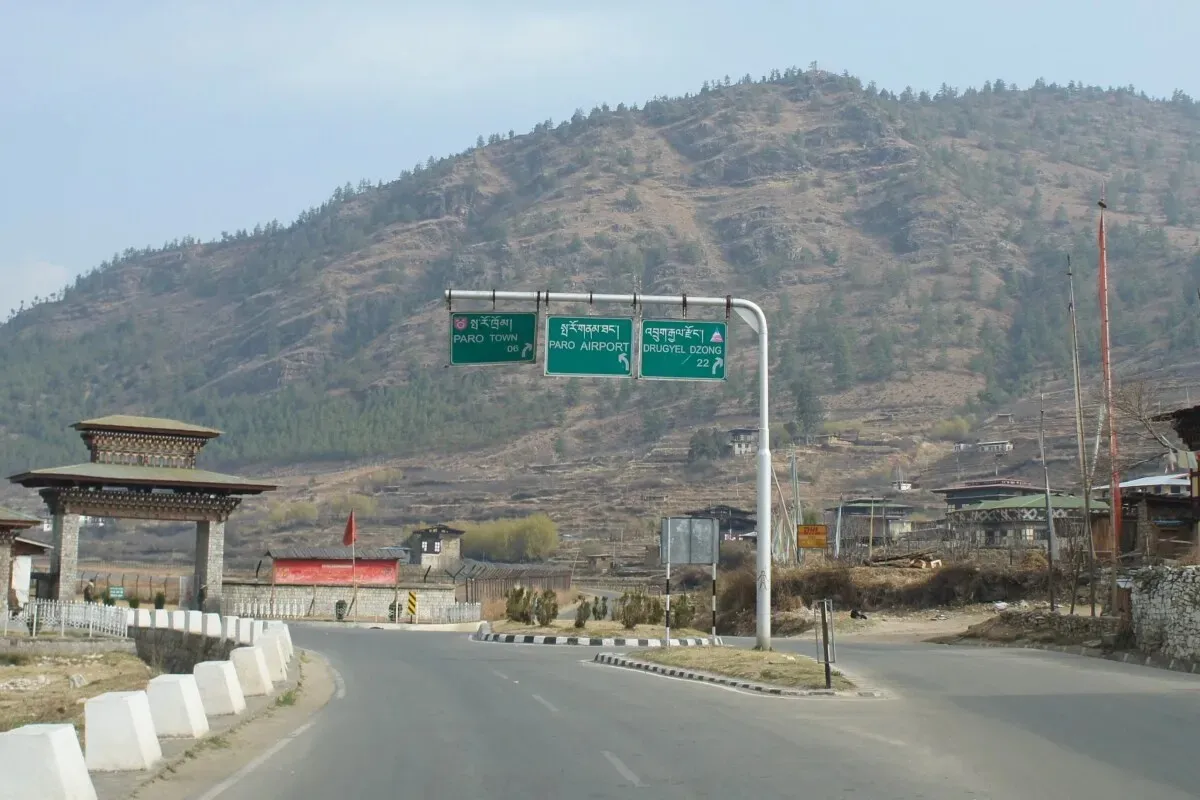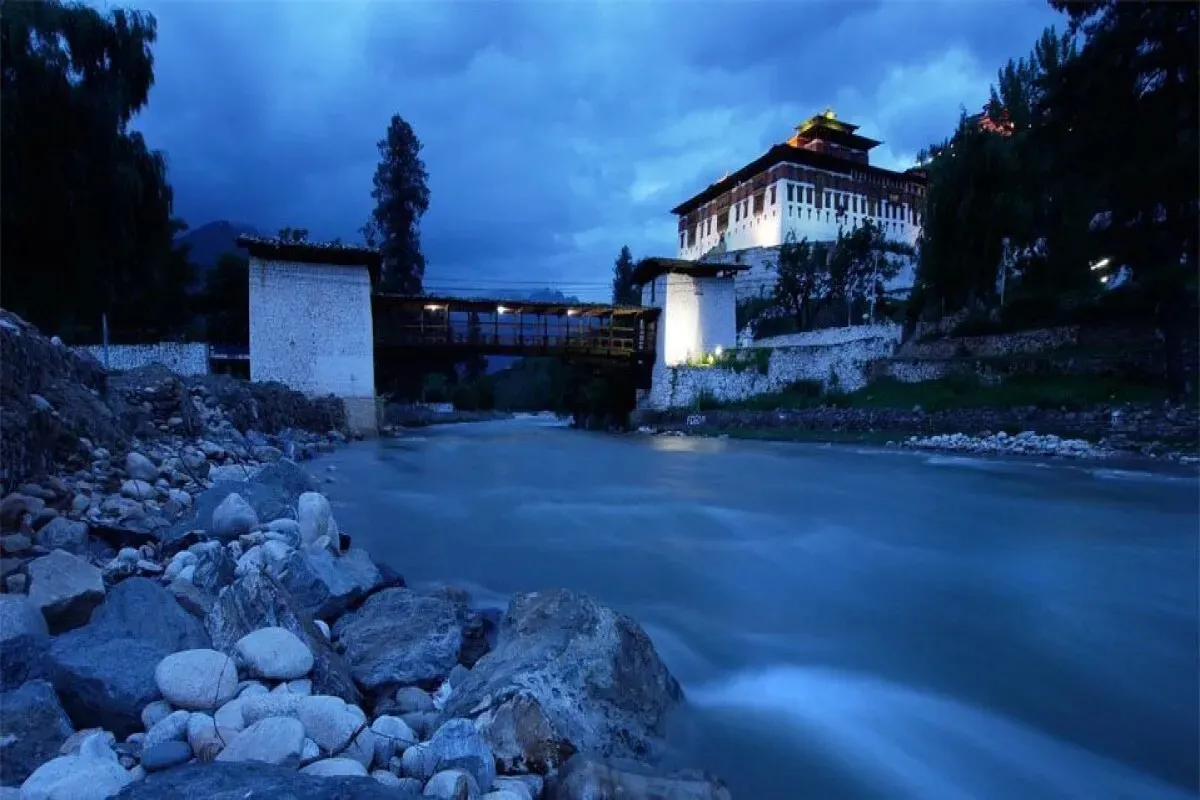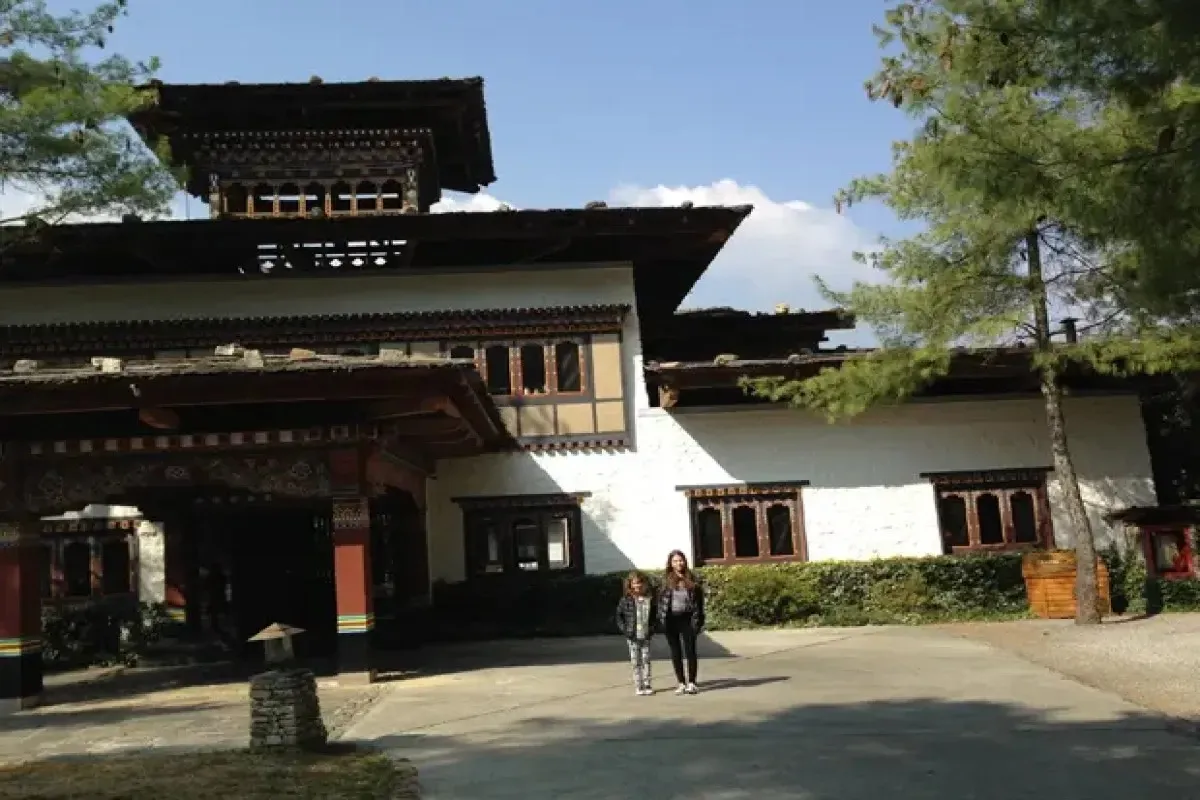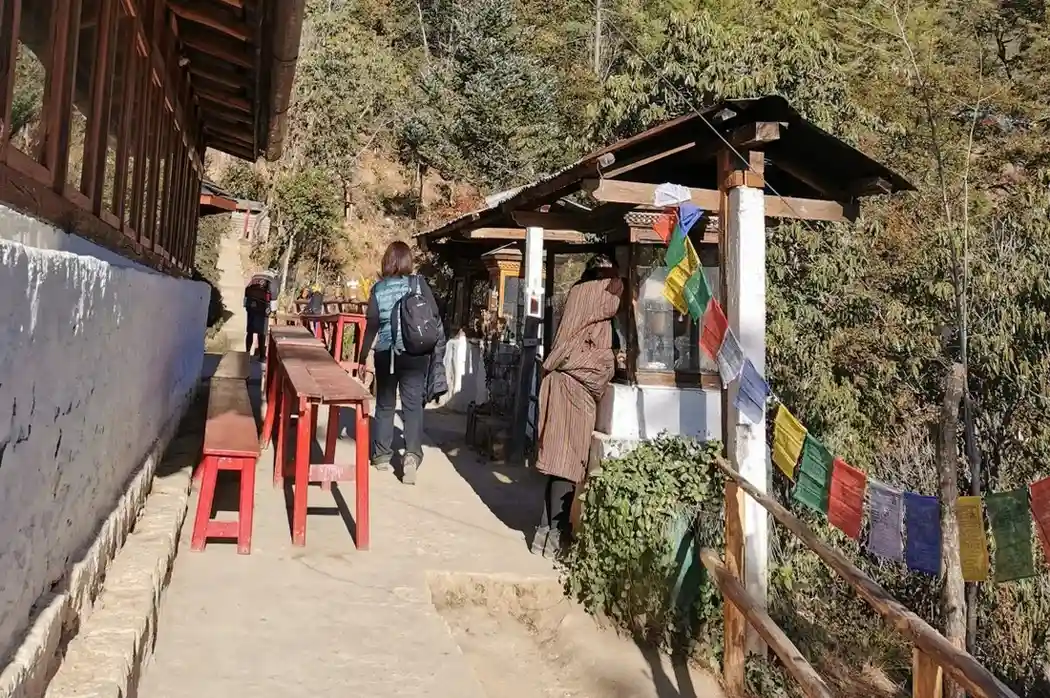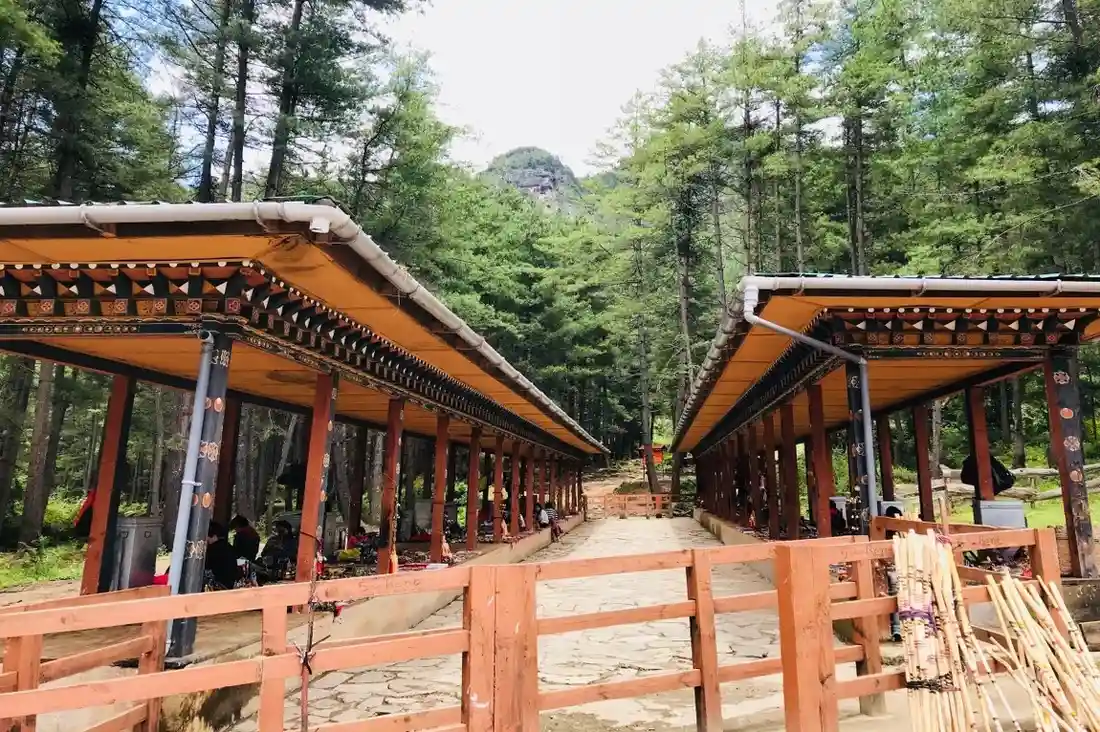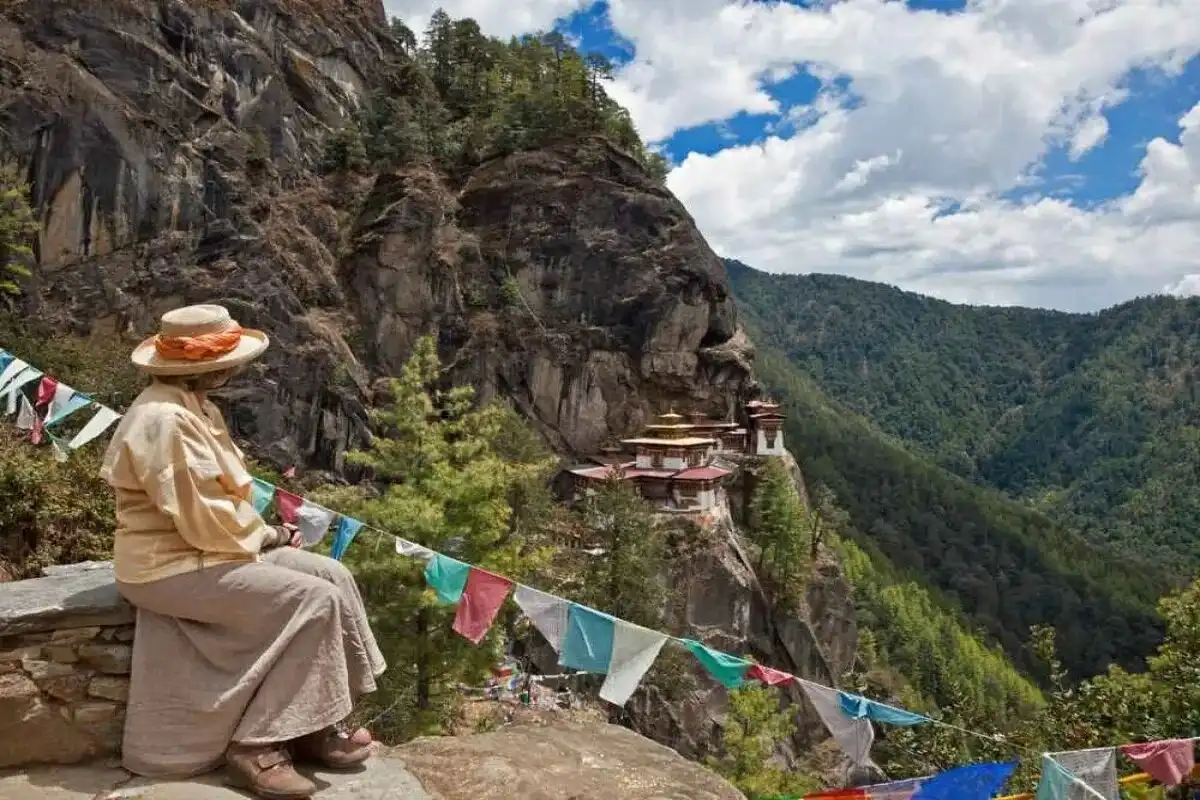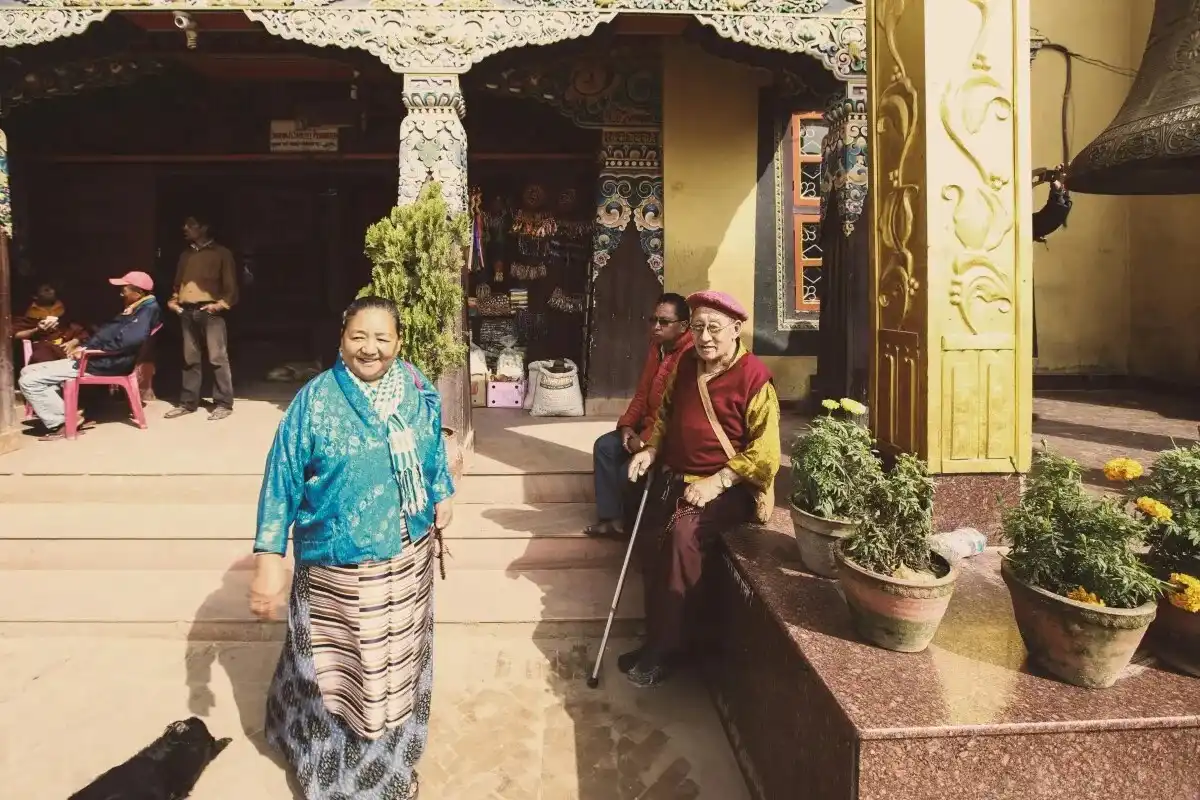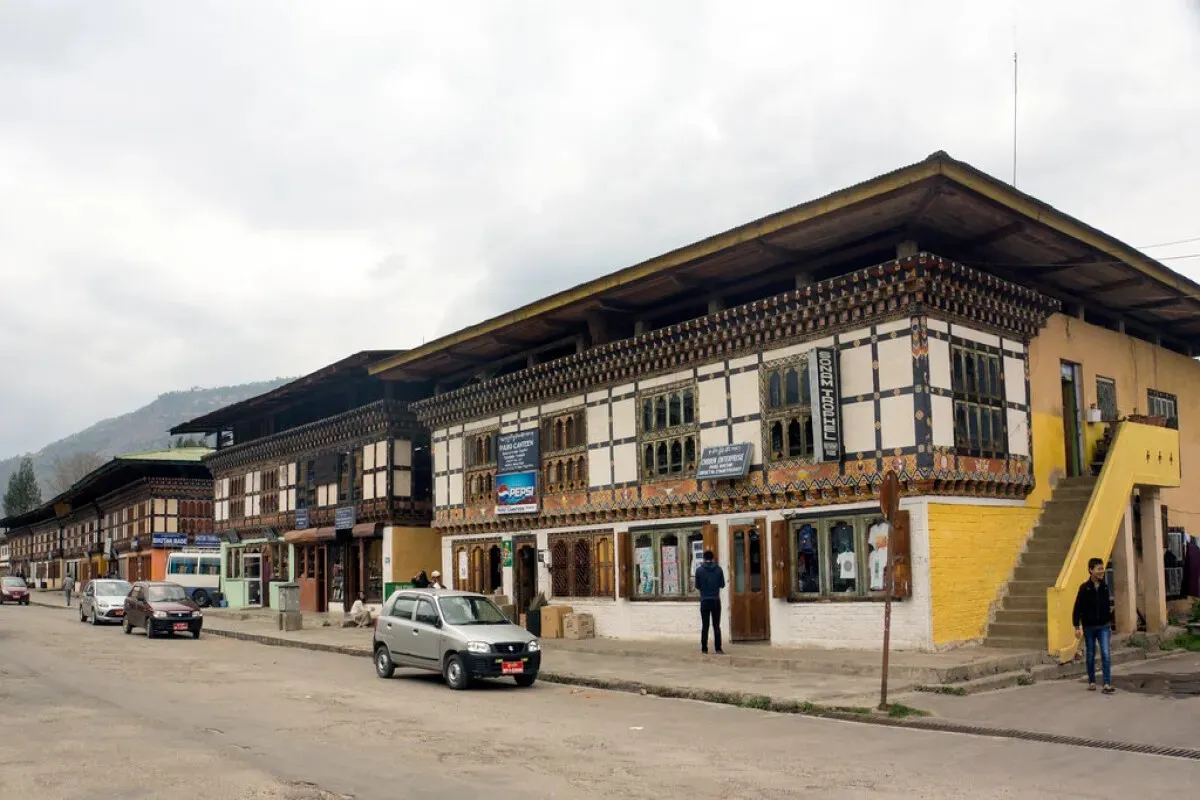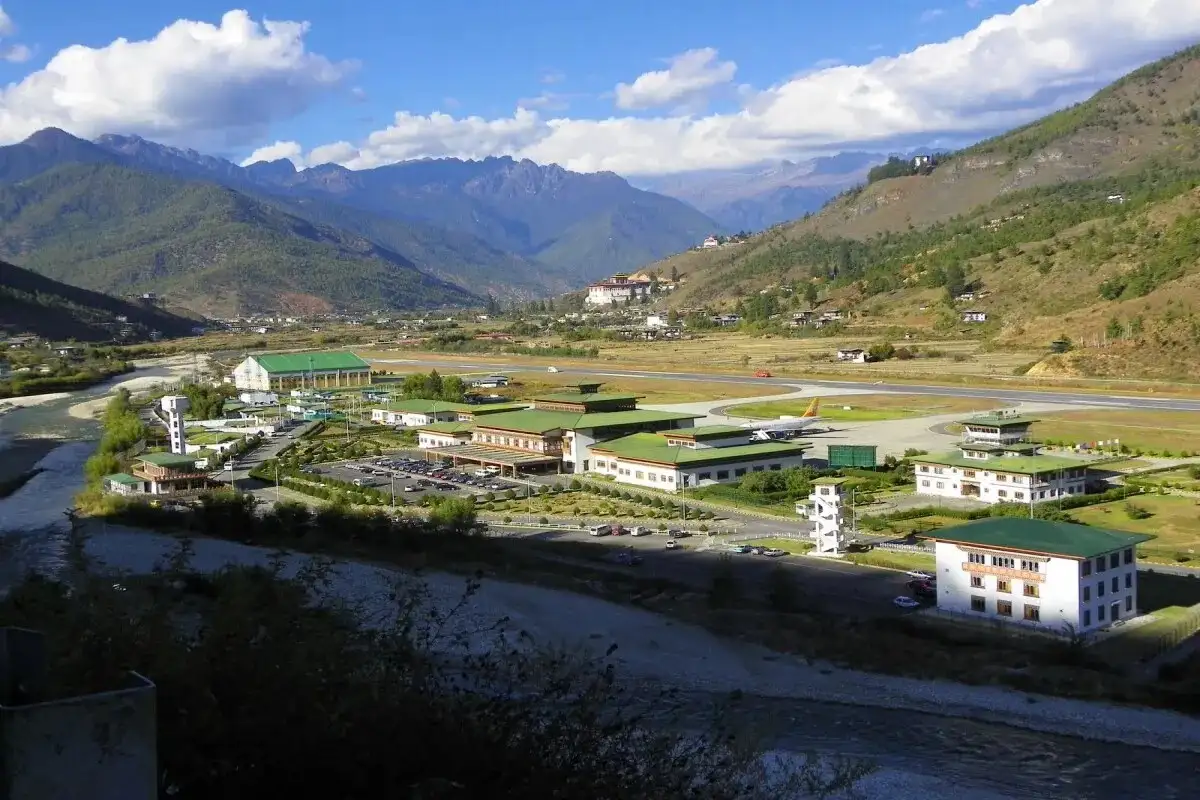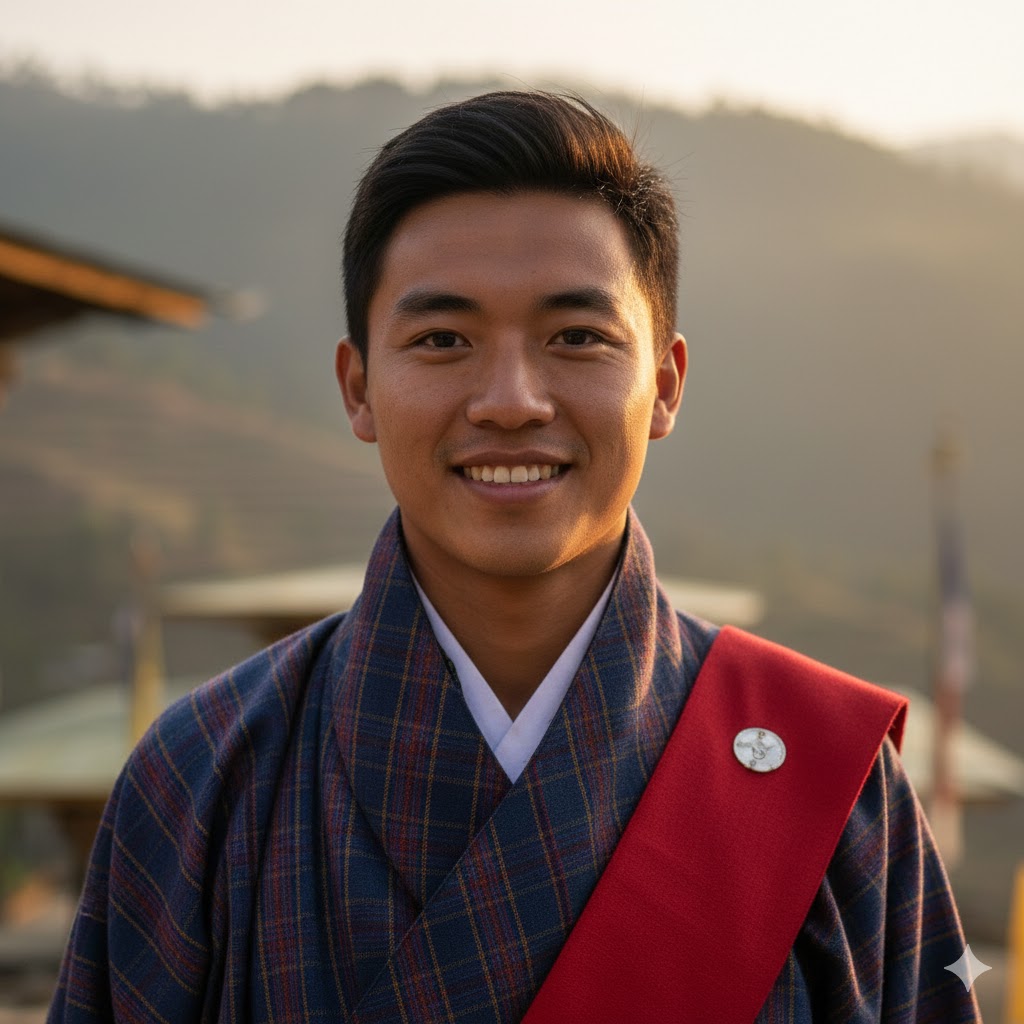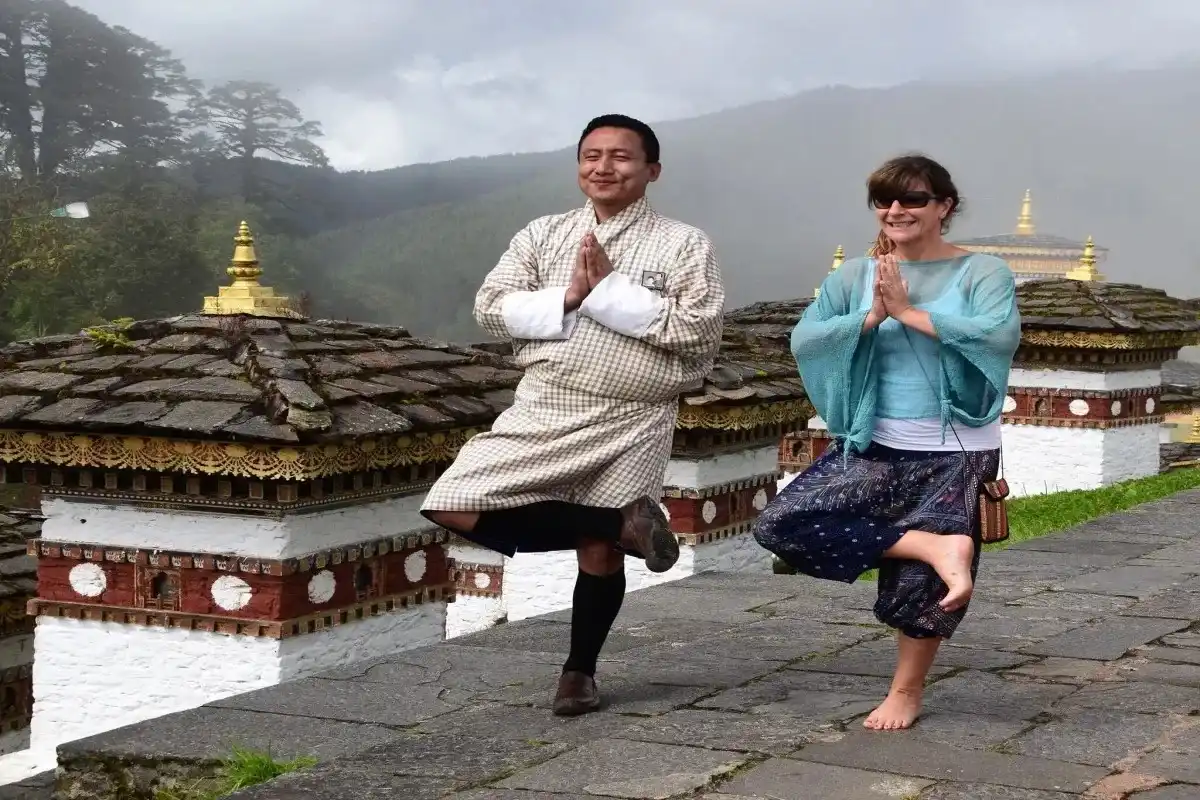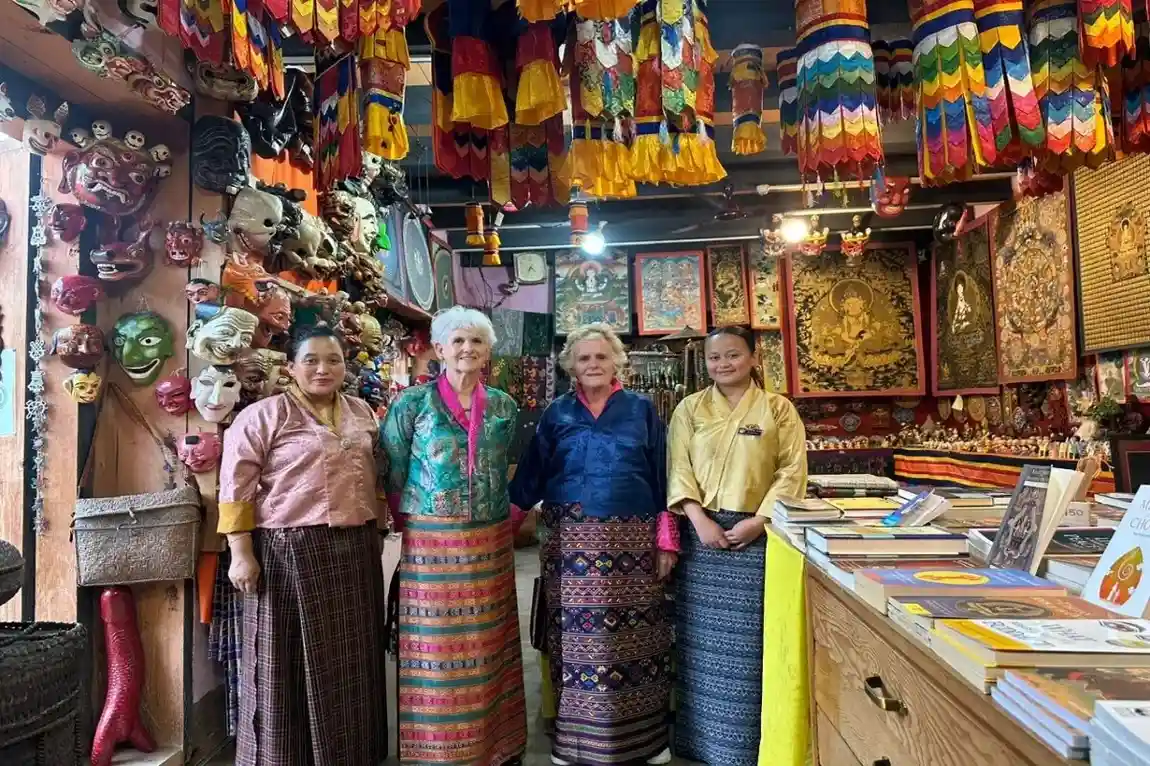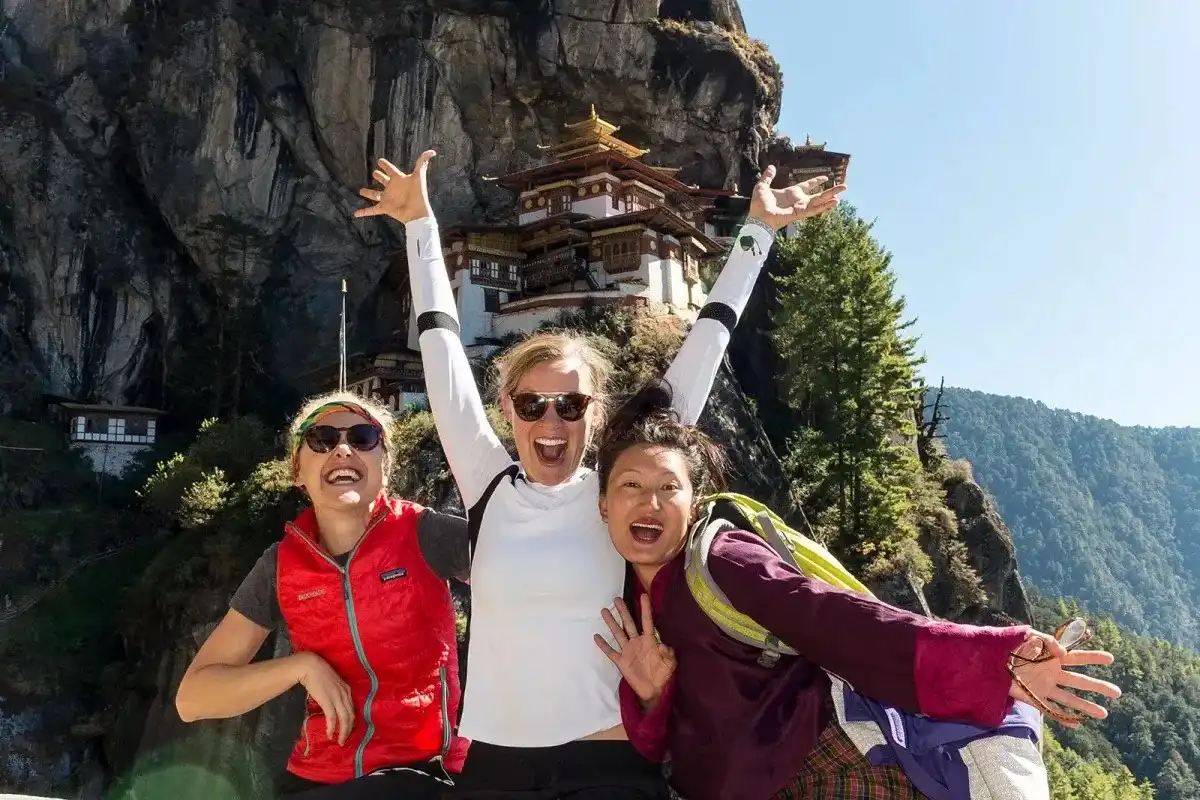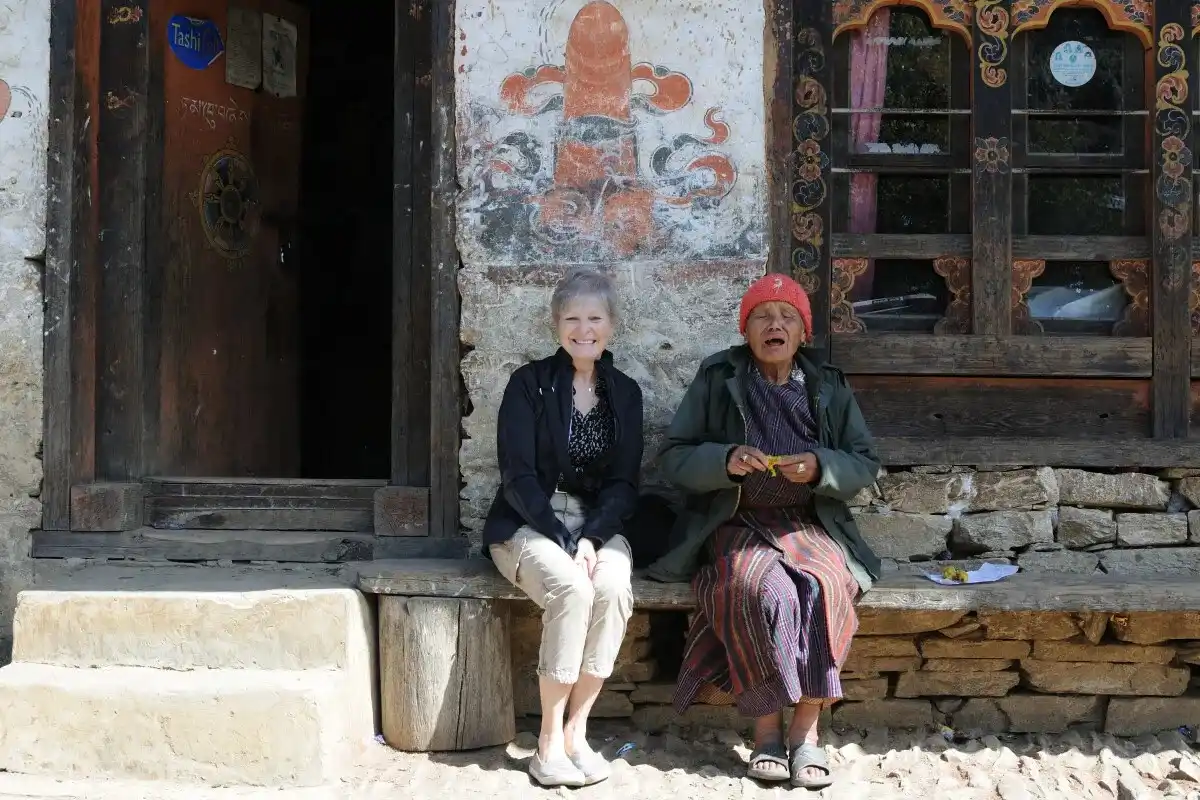The Ultimate Women's Cultural Escape - 10 Days
The Ultimate Women's Cultural Escape is a precisely crafted trip for women. People go there not only for an amazing holiday but for a total cultural immersion and soul searching.
Highlights
- Take part in Tshechu Festivals
- Participate in Traditional Weaving Workshops
- Authentic Bhutanese food and dress
- Visit the Bhutan textile museum
Trip Overview
The 10 days of your trip include various activities like ancient temple sightseeing, mountain top monasteries trekking, and interaction with the friendly locals. To be in a good state of health, you can do yoga, mindfulness and spend a considerable amount of time outdoors enjoying nature at its best. And, certainly, at every moment, you are going to meet the very warm-hearted Bhutanese and, therefore, you will feel yourself as part of the nation. Besides being an in-depth Buddhist culture discovery, this expedition is also an ideal opportunity for you to find yourself. You will be mentally and spiritually immersed in the heart of the Himalayas.
Highlights of The Ultimate Women's Cultural Escape
Get a taste of Bhutan's lively festivals, weaving customs, local kitchen, traditional apparel, and prosperous textile traditions.
Take part in Tshechu Festivals
You will have the awesome opportunity to be part of Bhutan's famous Tshechu festival, which is colourful, musical, and with masked dances. The festival, an occasion not for tourists but of a religious nature, which is very important to the people and hence anticipated all through the year. From the dances and rituals being performed just in front of you, you will be able to perceive everything, the energy, joy, and significance of the event that locals feel.
Participate in Traditional Weaving Workshops
After meeting with Bhutanese women who have been involved in weaving since their early years, you can go to the local women who will kindly explain to you in detail how to perform the patterns. The traditional loom is the mainstay of the cloth-making process, and it is a very relaxing and slow affair; they will assure you that you got each and every step right by the end.
Authentic Bhutanese food and dress
Enjoy mouth-watering Bhutanese food prepared from the best locally-grown products. You will also be given the chance to wear the traditional dress of Bhutan, an activity that will offer you not only an interesting and warm view of the wonderful culture and hospitality of that area, but also take you deep into it.
Visit the Bhutan textile museum
You will be taken to the Textile Museum in Thimphu, and you are going to find out how the Bhutanese are proud of their textiles. Every piece of cloth, from royal to daily wear, speaks for itself and of the people. It's more than just a casual visit to a museum- it’s an opportunity for a deep understanding of women's responsibilities, skills, and joy in Bhutanese life.
The 10 days of your trip include various activities like ancient temple sightseeing, mountain top monasteries trekking, and interaction with the friendly locals. To be in a good state of health, you can do yoga, mindfulness and spend a considerable amount of time outdoors enjoying nature at its best. And, certainly, at every moment, you are going to meet the very warm-hearted Bhutanese and, therefore, you will feel yourself as part of the nation. Besides being an in-depth Buddhist culture discovery, this expedition is also an ideal opportunity for you to find yourself. You will be mentally and spiritually immersed in the heart of the Himalayas.
Highlights of The Ultimate Women's Cultural Escape
Get a taste of Bhutan's lively festivals, weaving customs, local kitchen, traditional apparel, and prosperous textile traditions.
Take part in Tshechu Festivals
You will have the awesome opportunity to be part of Bhutan's famous Tshechu festival, which is colourful, musical, and with masked dances. The festival, an occasion not for tourists but of a religious nature, which is very important to the people and hence anticipated all through the year. From the dances and rituals being performed just in front of you, you will be able to perceive everything, the energy, joy, and significance of the event that locals feel.
Participate in Traditional Weaving Workshops
After meeting with Bhutanese women who have been involved in weaving since their early years, you can go to the local women who will kindly explain to you in detail how to perform the patterns. The traditional loom is the mainstay of the cloth-making process, and it is a very relaxing and slow affair; they will assure you that you got each and every step right by the end.
Authentic Bhutanese food and dress
Enjoy mouth-watering Bhutanese food prepared from the best locally-grown products. You will also be given the chance to wear the traditional dress of Bhutan, an activity that will offer you not only an interesting and warm view of the wonderful culture and hospitality of that area, but also take you deep into it.
Visit the Bhutan textile museum
You will be taken to the Textile Museum in Thimphu, and you are going to find out how the Bhutanese are proud of their textiles. Every piece of cloth, from royal to daily wear, speaks for itself and of the people. It's more than just a casual visit to a museum- it’s an opportunity for a deep understanding of women's responsibilities, skills, and joy in Bhutanese life.
Short Itinerary
Arrive in Paro, transfer to Thimphu, light city walk, and welcome dinner
Visit Textile Museum, Folk Heritage Museum, Memorial Chorten & local market
Join a weaving workshop, visit handicraft shops, and enjoy hot stone bath
Drive to Punakha via Dochula Pass, visit Chimi Lhakhang & evening meditation
Explore Punakha Dzong, riverside picnic, local women’s group & cooking session
Drive to Phobjikha Valley, nature trail walk, visit local school or project
Engage in local crafts, try traditional dress, hot stone bath & folk dances
Drive to Paro, local stroll or optional yoga/herbal steam bath
Hike to Tiger’s Nest Monastery, farewell dinner with music & dance
Departure from Paro International Airport with farewell blessings
The Ultimate Women's Cultural Escape Itinerary
You will get down at Paro International Airport today, where your guide will be there to welcome you. Later, you will be taken to Thimphu, which is the very attractive capital of Bhutan. Upon arrival at the hotel, you could do the check-in process and then chill as per your convenience. Subsequently, you can explore the city on foot for a little while just to get used to it. After this, you can enjoy your welcome dinner. Later, when you are having dinner, the guide will provide you with a brief of the culture that you will be experiencing during the journey over there.
Our day begins in the morning with a visit to the Bhutan Textile Museum. There, you will get to know not only the history of the country but also the tradition of weaving supported by colourful fabric. Then you will go to the Folk Heritage Museum and have an amazing time learning history and culture through the exhibits there. You will stop at the National Memorial Chorten for a short prayer. The Memorial Chorten is very peaceful and usually, local people gather there to do prayers. You will get an opportunity to wear a traditional Bhutanese dress, kira, and toego. During the evening, you can explore the local markets. You will be accommodated in Thimphu.
During the day, you will participate in a local weaving workshop conducted by the women of the community, where you get to know more about the techniques of natural dyeing, try loom weaving, and so understand the Bhutanese textile craft. Later, in the afternoon, you will be going around the nearby handicraft shops and get to see no mass production, but only some crafts and fabric made by hand. Alternatively, after a long day, you could take it easy with a spa treatment or a traditional Bhutanese hot stone bath if you want, which would indeed wrap the day up in a very nice way.
Following breakfast, you are going to take a road trip to Punakha, which usually takes about three hours. On the way, there will be a stop at Dochula Pass, for you to have a magnificent view of the Himalayan ranges and the 108 chortens. As soon as you arrive in Punakha, you will move on to Chimi Lhakhang, the place which is also called the Fertility Temple. When this is over, you can find a riverside lodge to check in and relax. Later on, if you want, you can practice your meditation skills by joining a brief guided meditation session.
Today, we will visit the magnificent Punakha Dzong, which is counted among the most well-known and most attractive buildings in Bhutan. After exploring the dzong, you may choose a nice place by the riverside to have a picnic that would be both enjoyable and quiet, as it is in natural surroundings. In the afternoon, you are going to visit a local women’s group. You can chat with them, learn about their lives, and probably share your own stories and experiences. Later, there will be an opportunity for you to cook a typical Bhutanese meal with the help of locals and, of course, you will taste those. Now it is time to sit around a fiery bonfire to listen to stories as the day comes to an end.
Post your morning meal, you are set to embark on a pleasant drive, heading towards Phobjikha Valley, which is accompanied by the beauty of the mountain roads. Soon after your arrival, you will be able to enjoy a calm walk in nature through the Gangtey Nature Trail while walking amidst the green and the pine trees of the place. Then, you will be visiting a local school or a women-led project to learn and see the real life of that area. In the early evening, have your check-in done at a lodge styled in a traditional farmhouse for an overnight stay, and make yourself feel comfortable.
Today, you have the opportunity to get along with the local culture and experience by going through the process of weaving and embroidery with a group of indigenous women artists. Feel free to try on the traditional clothes of Bhutan and snap some lovely pictures so that you can always keep this memory in your mind. You can either enjoy forest meditation or get a rejuvenating hot stone bath. In any case, be ready for an evening full of colourful folk songs and dances, which are the expression of the many beautiful world traditions of Phobjikha Valley, just before going to bed.
After you have breakfast, your drive will start and continue throughout the day to get back to Paro, and on the way, you will be able to see not only the beautiful scenery but also the snow-capped mountains. You will have lunch at a local restaurant on the way to Paro. On your arrival in Paro, the rest of the day is free for you. Have a relaxing stroll, shop for some souvenirs, enjoy a cup of coffee at a cosy café, etc. If you want, you can have a sunset yoga session or a herbal steam bath for relaxation. You will be staying in Paro at night.
Today will probably be the most unforgettable day of your trip. You will start your day by going on a thrilling ride up the mountain to the Tiger's Nest Monastery. The monastery is not only stunning, but it is also sacred and has a special spot in the middle of the vertical cliff. Have a peaceful lunch break at a local restaurant near the monastery after the hike. And, in the evening, dress as elegantly as possible in traditional Bhutanese garments and then participate in a heartfelt goodbye dinner combined with cultural music and the accompanying dance. This will be a very auspicious moment to close out your last night in Bhutan.
This morning, you will be driven to Paro International Airport to catch your flight. After transfer to the airport, you will have a warm farewell and a pleasant traditional blessing for a safe and wonderful journey. When you come back from Bhutan, you will have in your heart the things that you can never forget, and the bonds of your spiritual escape.
Know Before You Travel
-
Significance of The Ultimate Women's Cultural Escape:
The Ultimate Women's Cultural Escape is a special trip provided to women to have a full connection to Bhutan's culture and friendly communities. In this excursion, women are not only going on a tour of visual scenes, but they also immerse themselves in other routes of life through engagement in crafts workshops, participation in traditional cultural fairs, and real local living. You will get to learn and know about the customs and beliefs of the Bhutanese people, and a perfect escape from the daily hustle and bustle of life. It is an extraordinary chance for women from all over the world to gather together in the most serene kingdom on the planet to enjoy the beauty of womenhood.
The Ultimate Women's Cultural Escape Map
Download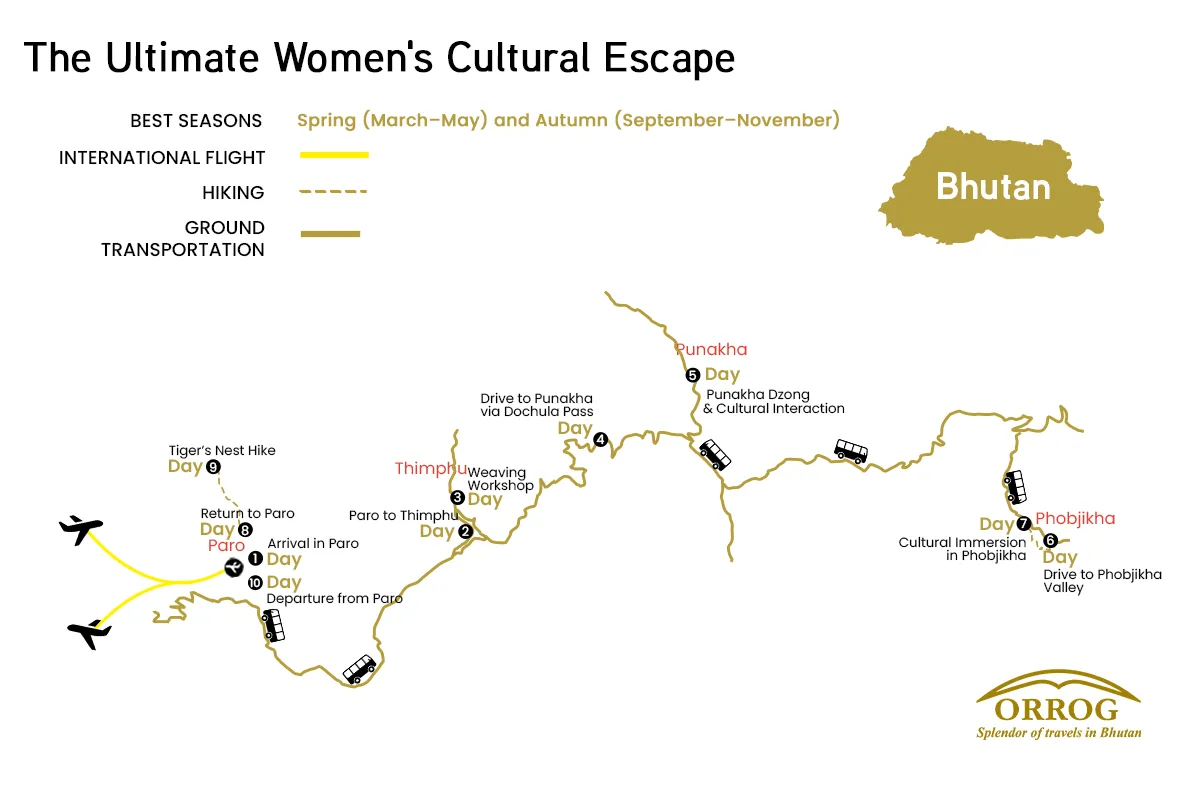
FAQs for The Ultimate Women's Cultural Escape
Definitely! You will spend half a day with local women in Thimphu, attending a weaving workshop. You will use a traditional loom, try simple weaving techniques and get to know about natural dyes and fabric patterns.
Yes, if the dates of your travel coincide with a Tshechu festival, we will make sure you experience it in a local, respectful manner.
Guests may receive relaxation treatment in the form of a hot stone bath, herbal steam, forest meditation or private yoga sessions.
Yes, single women travellers are very welcome on this tour. It often happens, and they feel comfortable with this setting, as well as culturally shared experiences, and mutual support.
No, a climb is voluntary, but it still comes highly recommended. It is definitely a must-do when on the trip, and we are going to take it slow. If any kind of assistance like ponies and porters will be made available to you during the hike.
You will have the chance to interact and get involved in a lot of activities with groups of local women. The activities will include taking part in folk dance and storytelling evenings, making traditional foods, and being on a visit to projects initiated by the community in Phobjikha.
You will check into a locally managed farmhouse-style lodge with all required modern facilities to ensure a comfortable stay. Apart from modern facilities, the most attractive feature of the lodge is its authentic village setting, where the food is homemade and the family who owns the place offers you warm hospitality.
You need a visa and all necessary permits for your trip. These documents can not be received on the day of your arrival, so they must be processed before coming here. After you book a trip with us, we will manage these papers for you. Your Bhutan visa is arranged by Orrog as part of the package.
The main way to come to Bhutan is through Paro International Airport, which is well-connected to cities like Bangkok, Delhi, Kathmandu, and Singapore. Most people arrive by air, but if you plan to come via road, you can enter through Phuentsholing, located on the southern border with India, which is the most commonly used entry point.
It is recommended to apply for the visa at least 20 days before your planned departure date so that there is enough time for processing your Bhutan visa, finalizing your itinerary, and arranging your guides and transportation. Although visa processing itself is relatively fast once payment is received, early preparation helps avoid delays and ensures availability, especially during peak seasons (spring and autumn).
You don’t require a passport-size photo for the visa, but it is wise to carry at least 2–4 recent passport-sized photographs during your trip. These may be needed for local permits, registration, or when applying for a local SIM card upon arrival in Bhutan.
Yes, you can lengthen your stay in Bhutan either before or after your trip. Bhutan’s tourism model requires visitors to pay a Sustainable Development Fee (SDF) and a daily package cost, so any extra days will involve additional charges. Extensions are a great opportunity to explore cultural sites in Paro, Thimphu, or even add another short trip or day hike.
Yes, Bhutan requires full tour payment in advance before your visa can be processed and issued. The government of Bhutan regulates this policy to ensure that all travel arrangements are confirmed through a licensed Bhutanese tour operator. We are a licensed tour operator that ensures you have everything you need for a trouble-free trip.
Any personal expenses are not covered in the package like:
- Tips for your guide and other staff
- Bottled drinks and snacks(personal expense)
- Souvenirs or local crafts
Credit cards are easily accepted in major cities like Paro and Thimphu. But in remote areas, you may not have access to a card or an ATM. So, it is best to carry some cash before heading for the trip.
Tipping is not mandatory, but it is a widely appreciated gesture and a customary way to show gratitude for good service. The tipping guideline would be to give USD 5-10 per day as a tip for the guides and other staff.
Paro International Airport is the only international airport in Bhutan. It is well connected by flights from cities like Bangkok, Delhi, Kathmandu, and Singapore.
Yes, airport pick-up and drop-off are included in the package. We will have your guide and driver meet you at the airport and transport you to your hotel.
While Bhutan's roads are mostly paved, some parts are narrow, winding, and occasionally affected by weather. However, we ensure your travel is safe, well-maintained, and driven by an experienced professional throughout the journey.
The Bhutanese Ngultrum is used in Bhutan. All local transactions during the trip will be in BTN.
US Dollars (USD) are generally accepted at larger hotels, souvenir shops, and tour operators, particularly in Paro and Thimphu. However, it’s advisable to convert your currency to BTN for general purchases in rural areas. Other currencies like the Euro or the Pound are not commonly accepted directly.
No, credit or debit cards are not accepted on the trip, as it takes you through remote regions with no banking or electronic payment access. All trip-related payments like accommodation, meals, permits, etc, are paid in advance.
You can exchange foreign currency at the Paro International Airport, at banks, or through licensed money changers in cities like Thimphu and Paro. It's best to exchange enough cash before heading out on the trip.
The national language is Dzongkha, but many Bhutanese also speak English. If you speak English and are worried about communicating with the local people, you will have your guide as a translator.
Yes, all licensed tour guides in Bhutan are required to speak fluent English. Many are also trained in other languages such as German, Japanese, or French. Communication during the trip will be smooth and clear in English.
Most signboards, tourist maps, and information brochures are written in English, especially in tourist destinations like Paro, Thimphu, and trailheads. Directional signs along routes are often labeled in both Dzongkha and English.
No, learning Dzongkha is not at all needed for the trip, but knowing a few basic words like "Kuzu zangpo la" (Hello) or "Kadrinche la" (Thank you) is a good way to interact with the locals.
Language barriers are minimal, as your guide will handle all communication with locals and support staff. Your guide will translate for you during your interaction with the locals.
To greet people, you can greet with locals “Kuzu zangpo la” (Hello) by performing a slight bow. Most common greetings include physical greetings, such as shaking hands less visible, especially in rural areas.
Yes, but remember to seek permission, especially when taking photos of monks, locals, or temples. Please note that clicking photos is not allowed at most religious sites.
Visitors should dress modestly and respectfully. This means:
- Covering shoulders and knees
- Removing hats and sunglasses
- Not wearing shorts or sleeveless tops
This applies to both men and women.
Yes, Bhutanese society is deeply rooted in Buddhism and tradition. Here are some key taboos:
- Do not point your feet at people or sacred objects
- Never touch anyone on the head, as it is considered sacred
- Walk clockwise around temples, stupas, and religious monuments
- Avoid public displays of affection
While gifts are not expected, they may be accepted graciously if given with respect. It is advisable to consult with the guide before giving out anything.
Bhutan typically uses Type C, Type D, and Type G electrical outlets. Standard safe voltage is 230V and frequency is 50Hz; therefore, ensure that your equipment is compatible with this voltage.
Indeed, it is highly advised to take along a universal travel adapter, particularly one to fit a variety of types of plugs, because plugs can be different in a hotel or a guesthouse.
Bhutan follows Bhutan Time (BTT), which is UTC/GMT +6 hours. This time zone remains consistent throughout the year.
No, Bhutan does not observe daylight saving time. The country maintains the same time year-round.
Bhutan is 30 minutes ahead of India. For example, 12:00 PM in India is 12:30 PM in Bhutan.
Yes, souvenirs can be bought in Paro or Thimphu before or after the trip.
Some popular souvenirs include hand-woven textiles (kira and gho fabric), prayer flags, thangka (religious scroll) paintings, handmade paper products, traditional masks, and Buddhist artifacts.
You can do some gentle bargaining in local street markets. However, in government-run shops and fixed-price stores, prices are usually non-negotiable.
Yes, you can easily purchase a SIM card upon arrival in Bhutan. We will assist you with the process, and you'll need a passport copy and a passport-sized photo.
No, internet access is not available during the trip. However, Wi-Fi is available in hotels in Paro and Thimphu before and after the trip.
Since the weather can be unpredictable and temperatures can vary drastically, layered clothing is essential. You should pack:
- Base layers (thermal tops and bottoms)
- Insulating layers like fleece or down jackets
- Waterproof and windproof outer layers
- Warm hats, gloves, and neck gaiters for freezing conditions
- Moisture-wicking socks and weatherproof trekking boots
Nighttime temperatures can be extremely cold, especially at high-altitude places. So you need to have enough clothing to keep you warm.
The weather is clear with mild daytime temperatures during spring and autumn.
Yes, all tours include certified, English-speaking guides who are knowledgeable in Bhutanese history and culture.
You can learn about the Bhutanese culture through local interactions, homestay visits, cooking classes, traditional art workshops, and attending local festivals and religious ceremonies.
Reviews & Ratings
-
Guarantee -
Thimphu,Bhutan -
975+17160228
Ready to Explore Bhutan?
Start your journey today and discover the magic of Bhutan with our expert guides and carefully crafted tours.
Book This Trip
-
No booking or credit card fees -
Best price guarantee -
Full customize trip
Ask a Question
Feel free to ask us anything about this tour. A travel expert will then get back to you as soon as possible
Ready to Explore Bhutan?
Start your journey today and discover the magic of Bhutan with our expert guides and carefully crafted tours.
